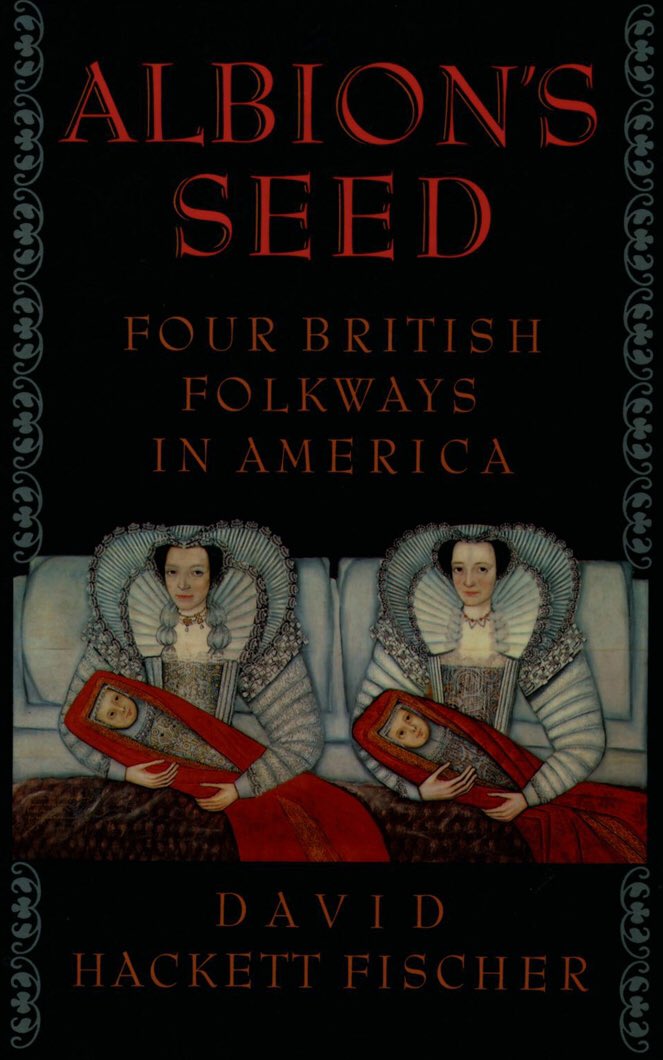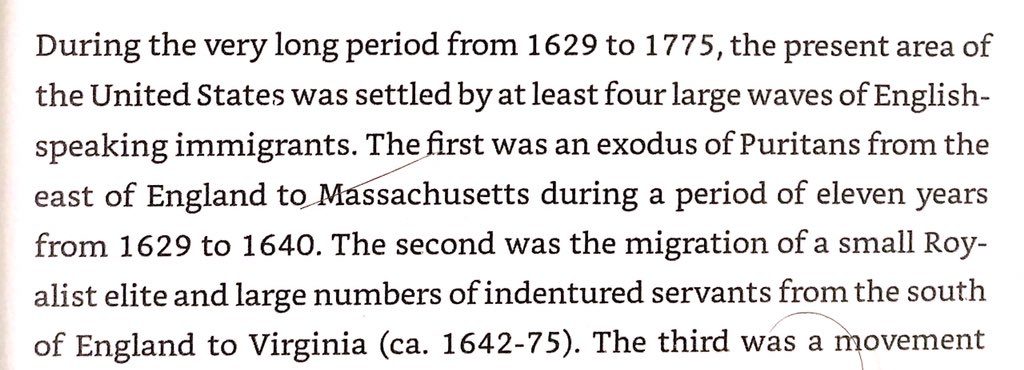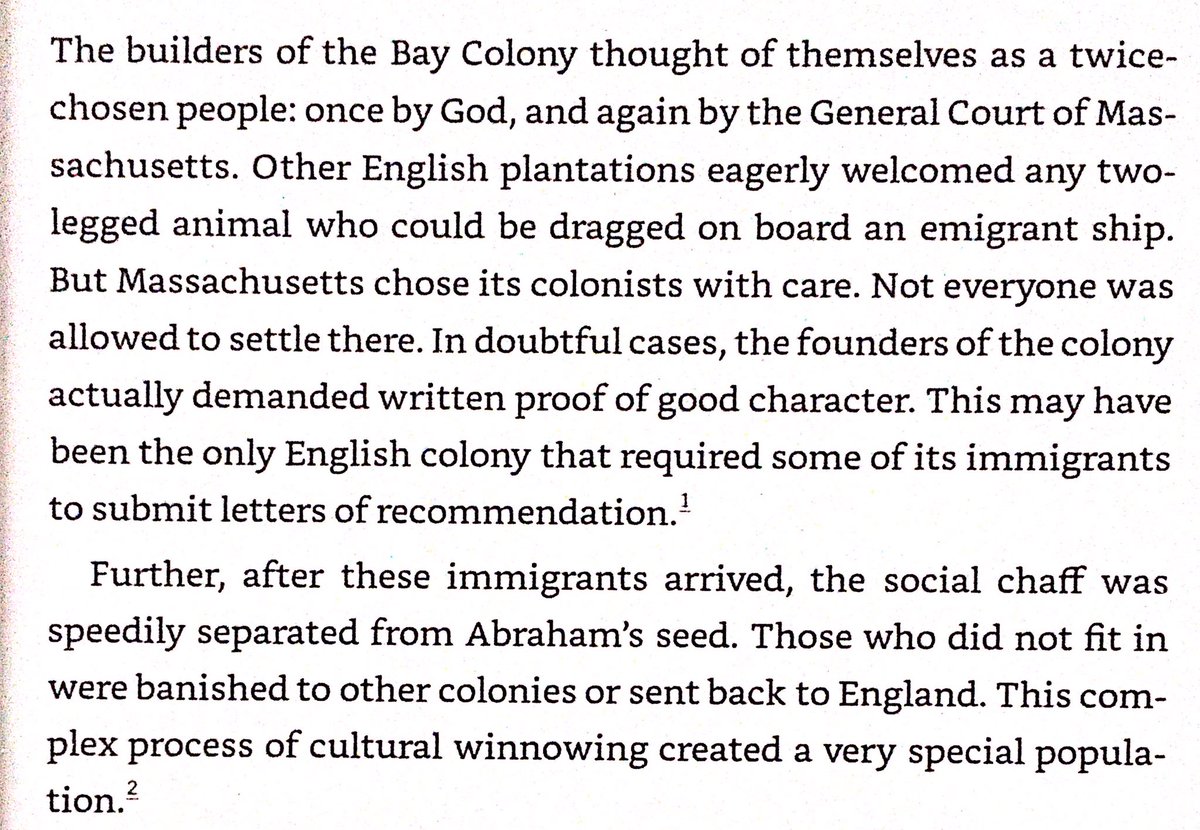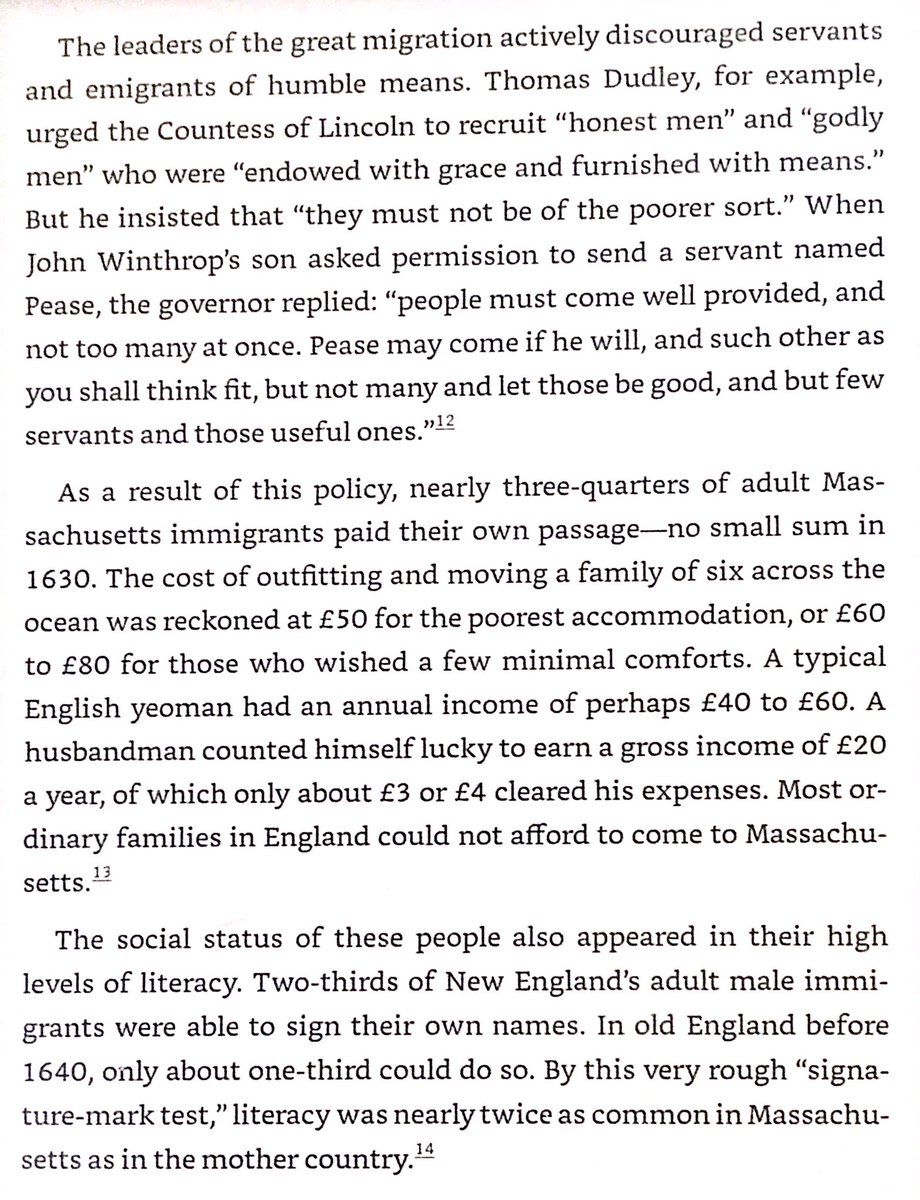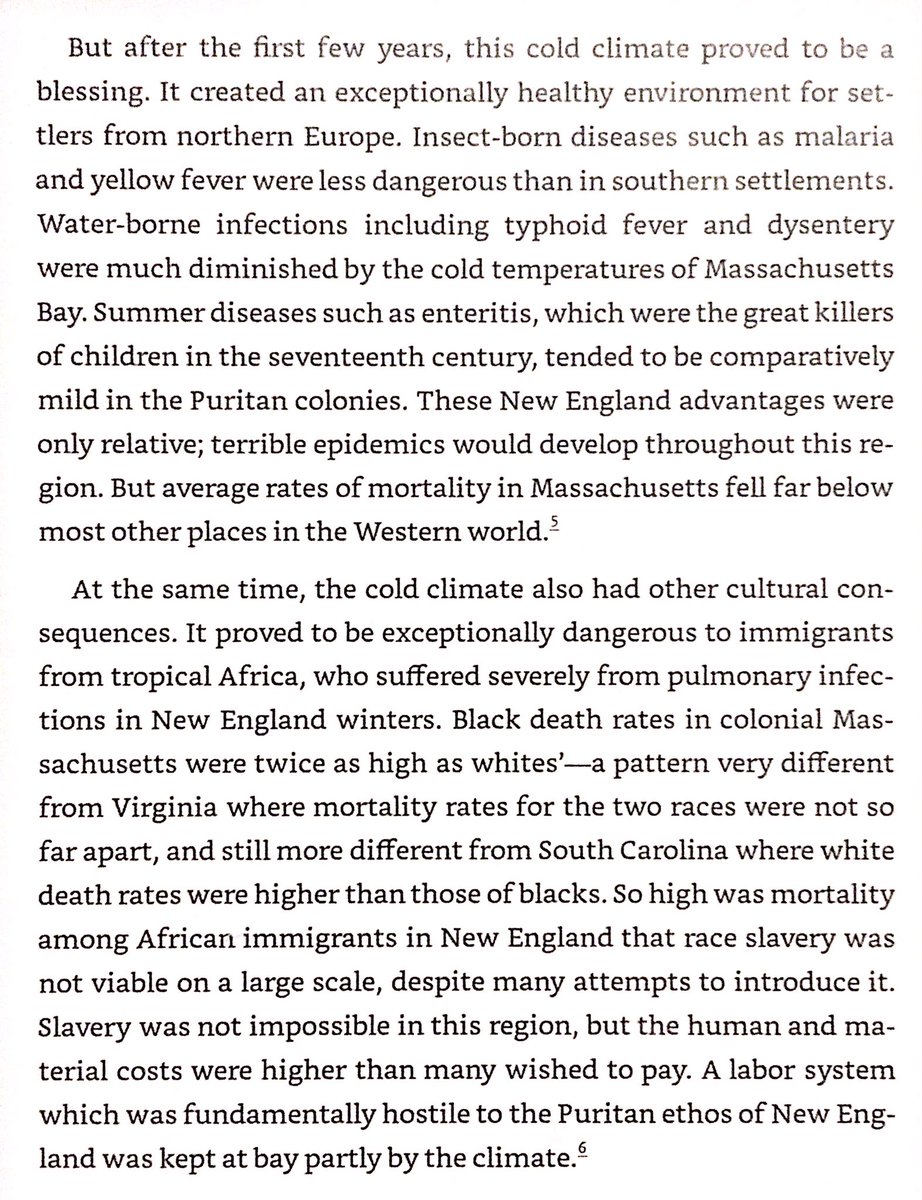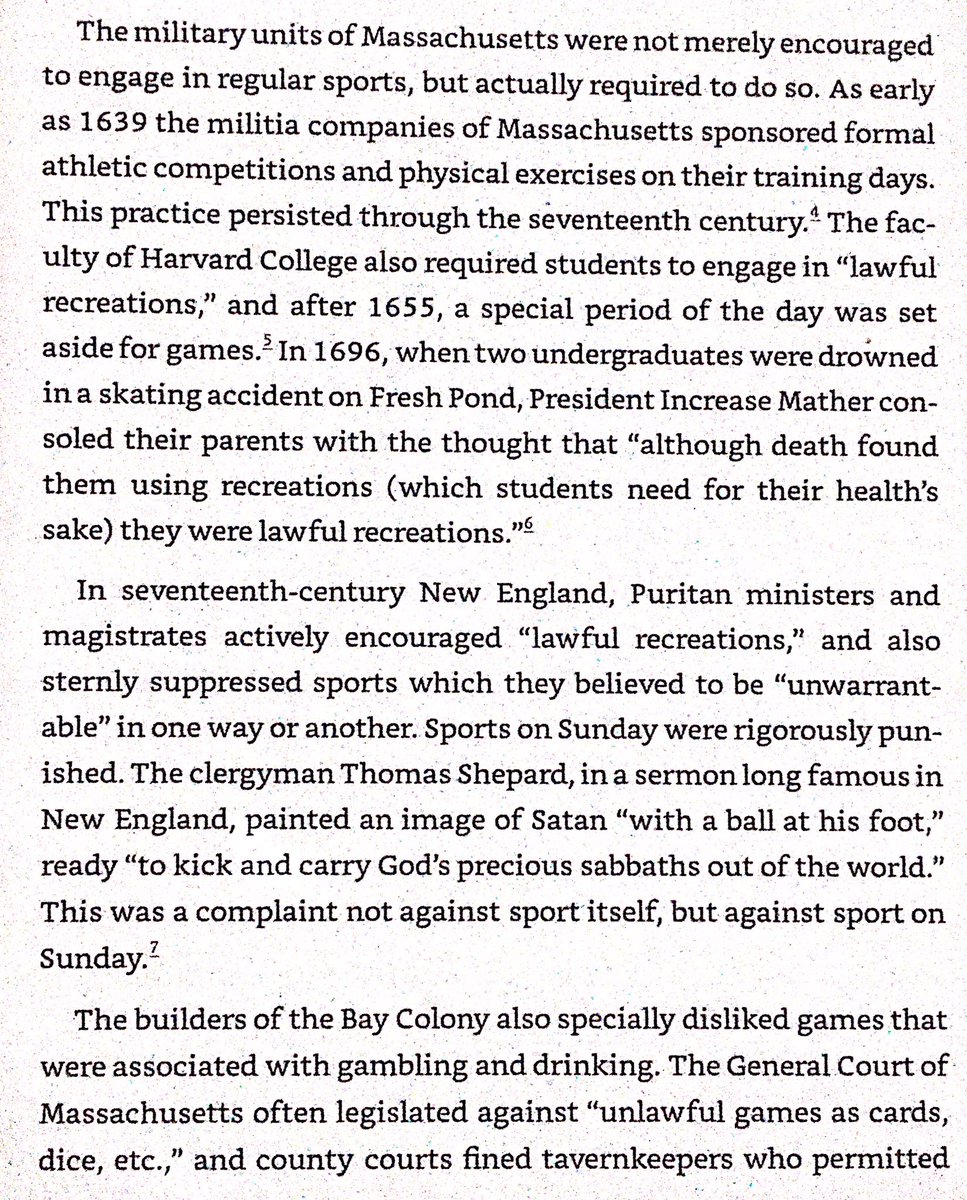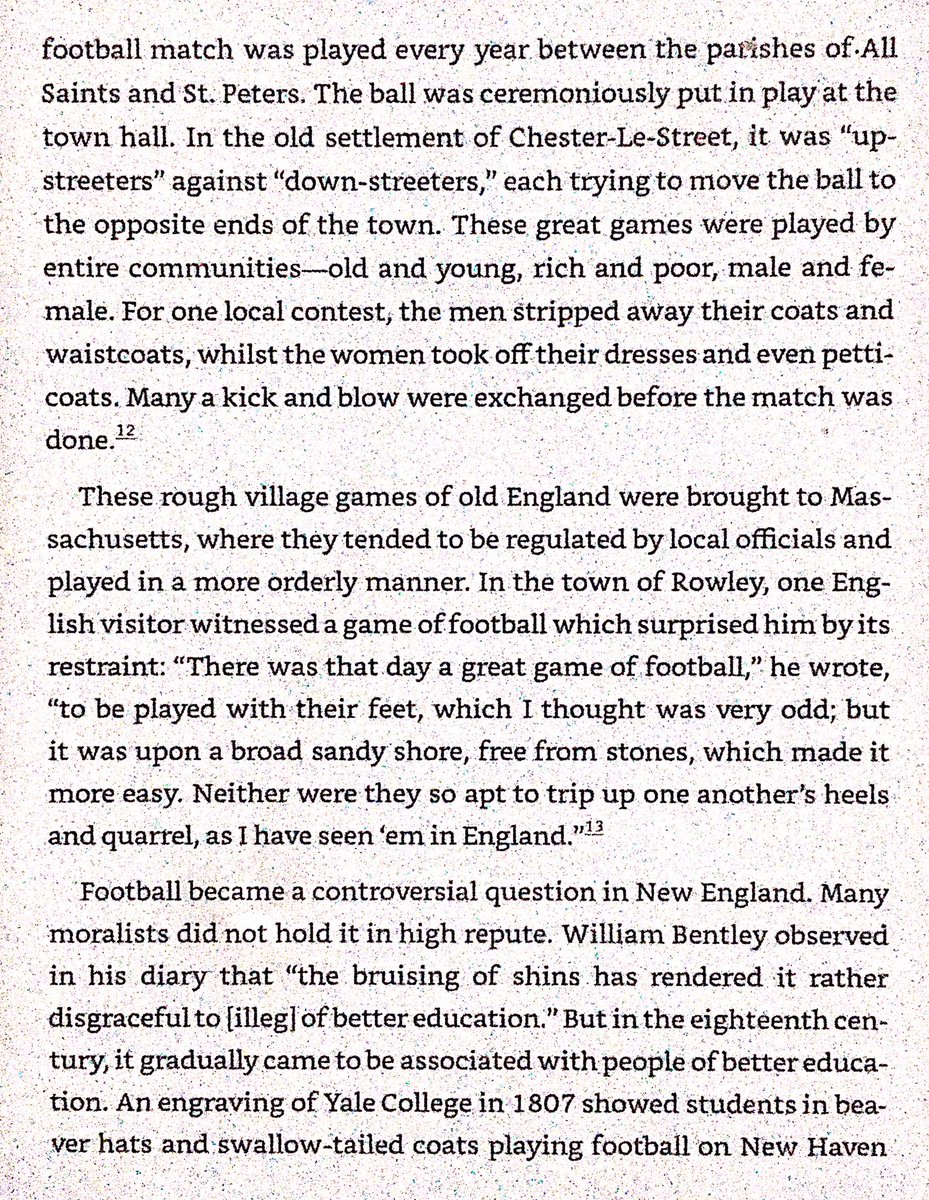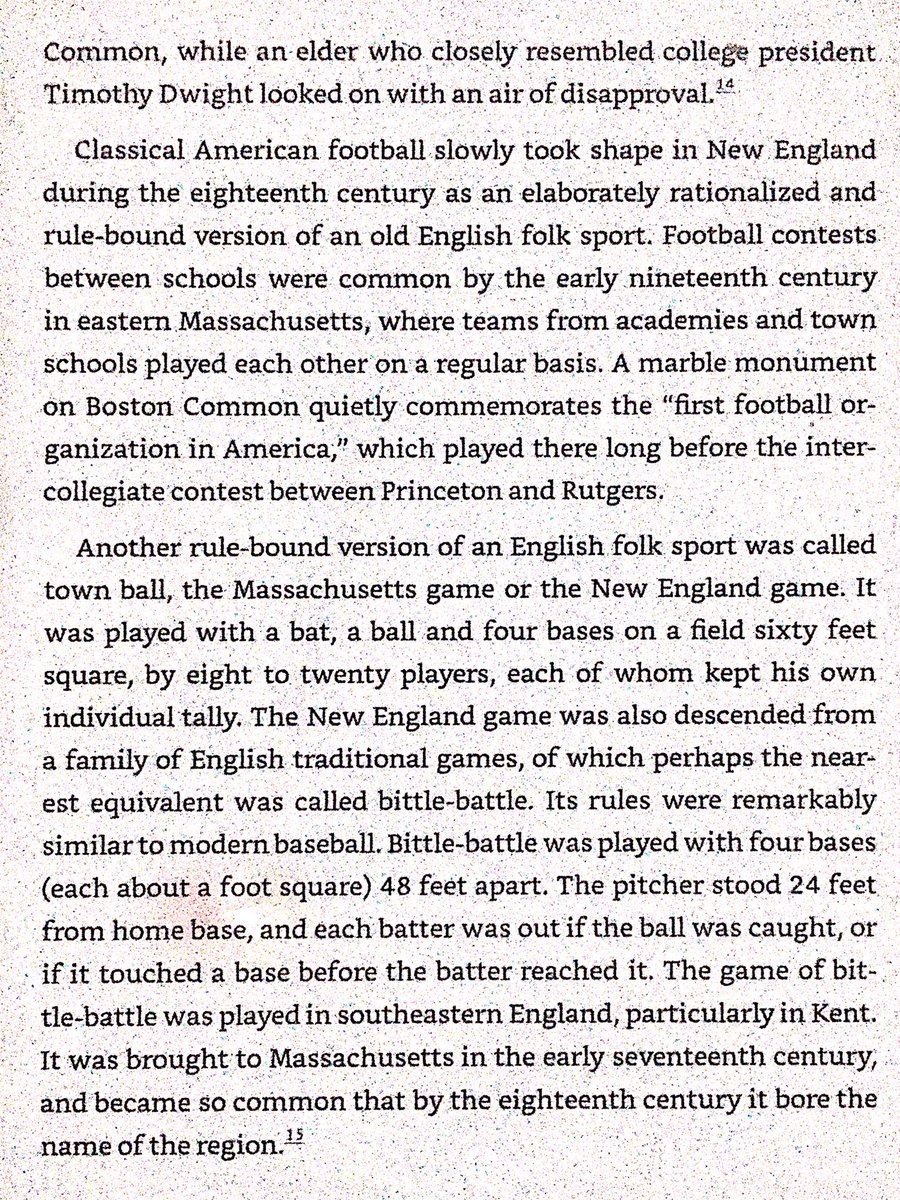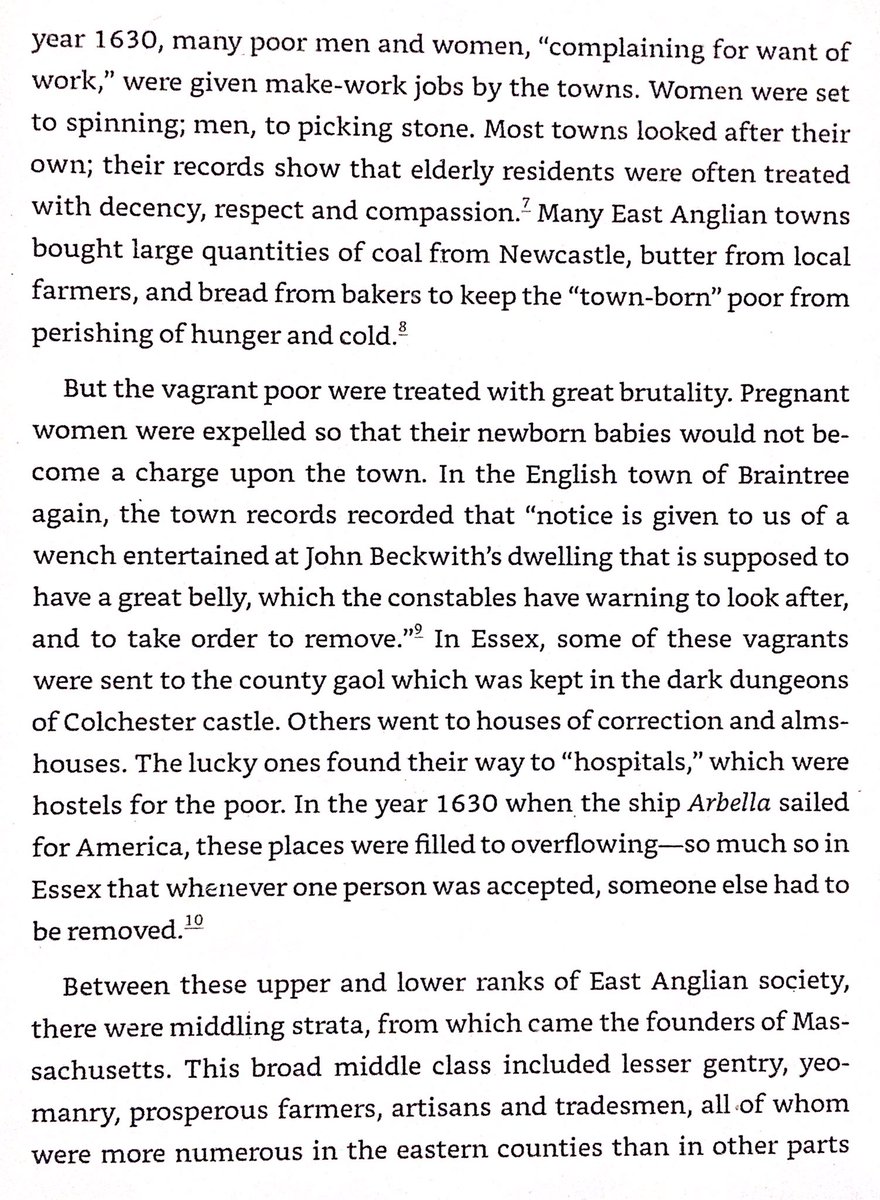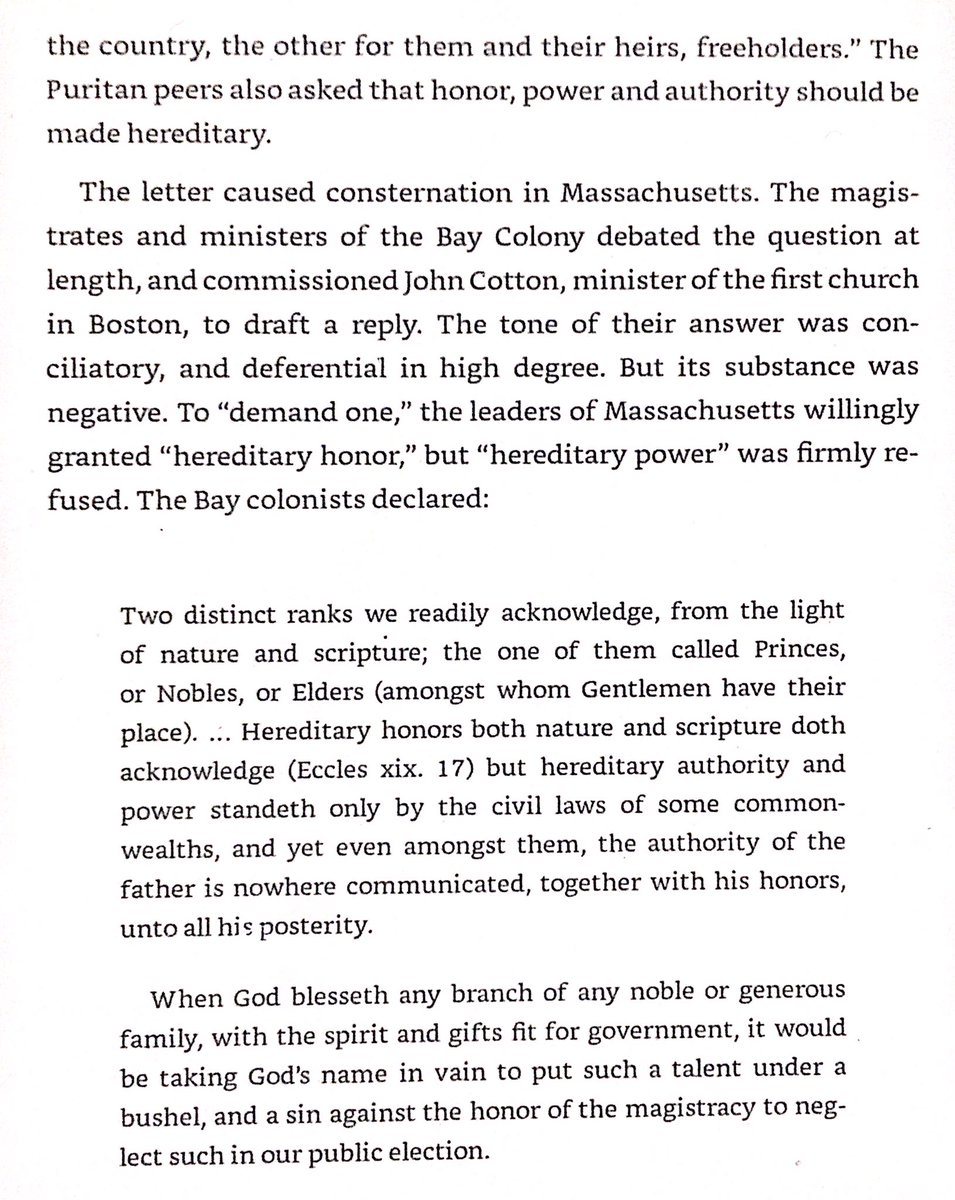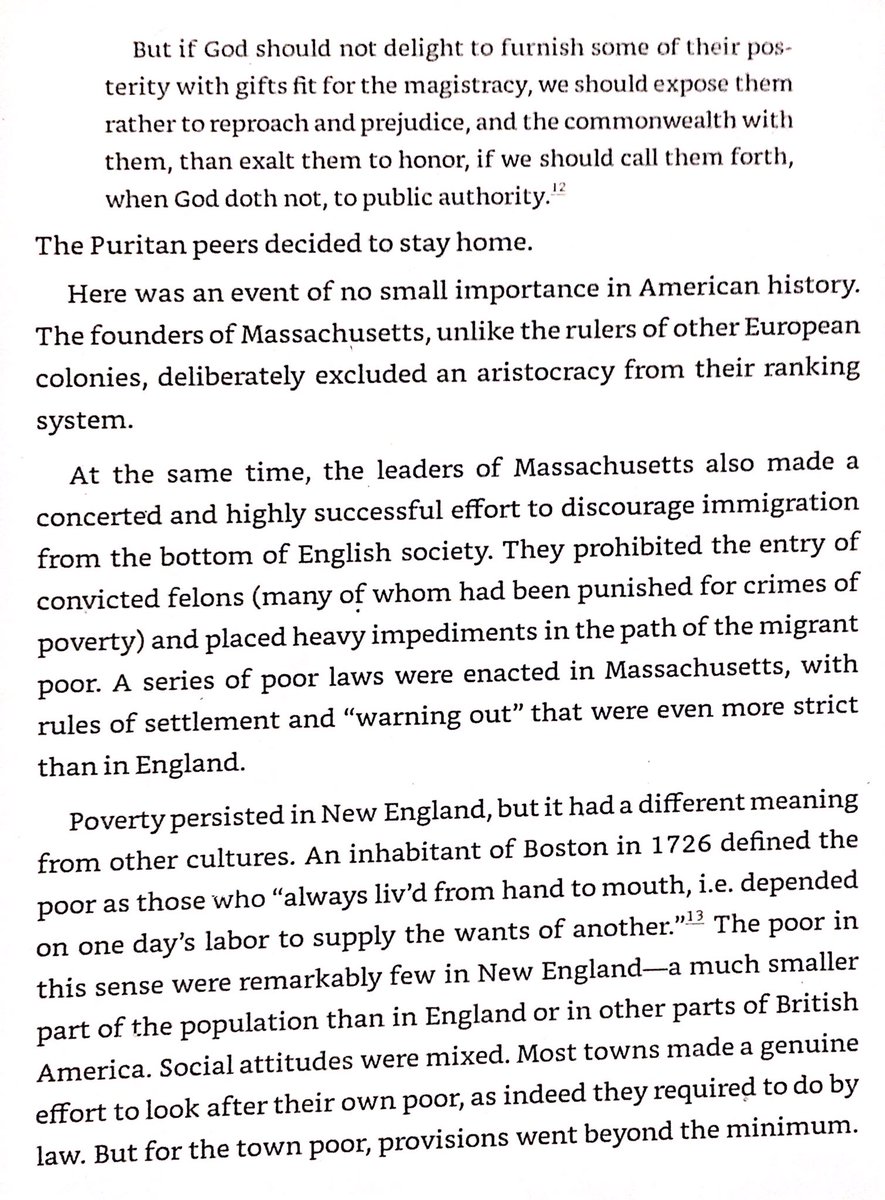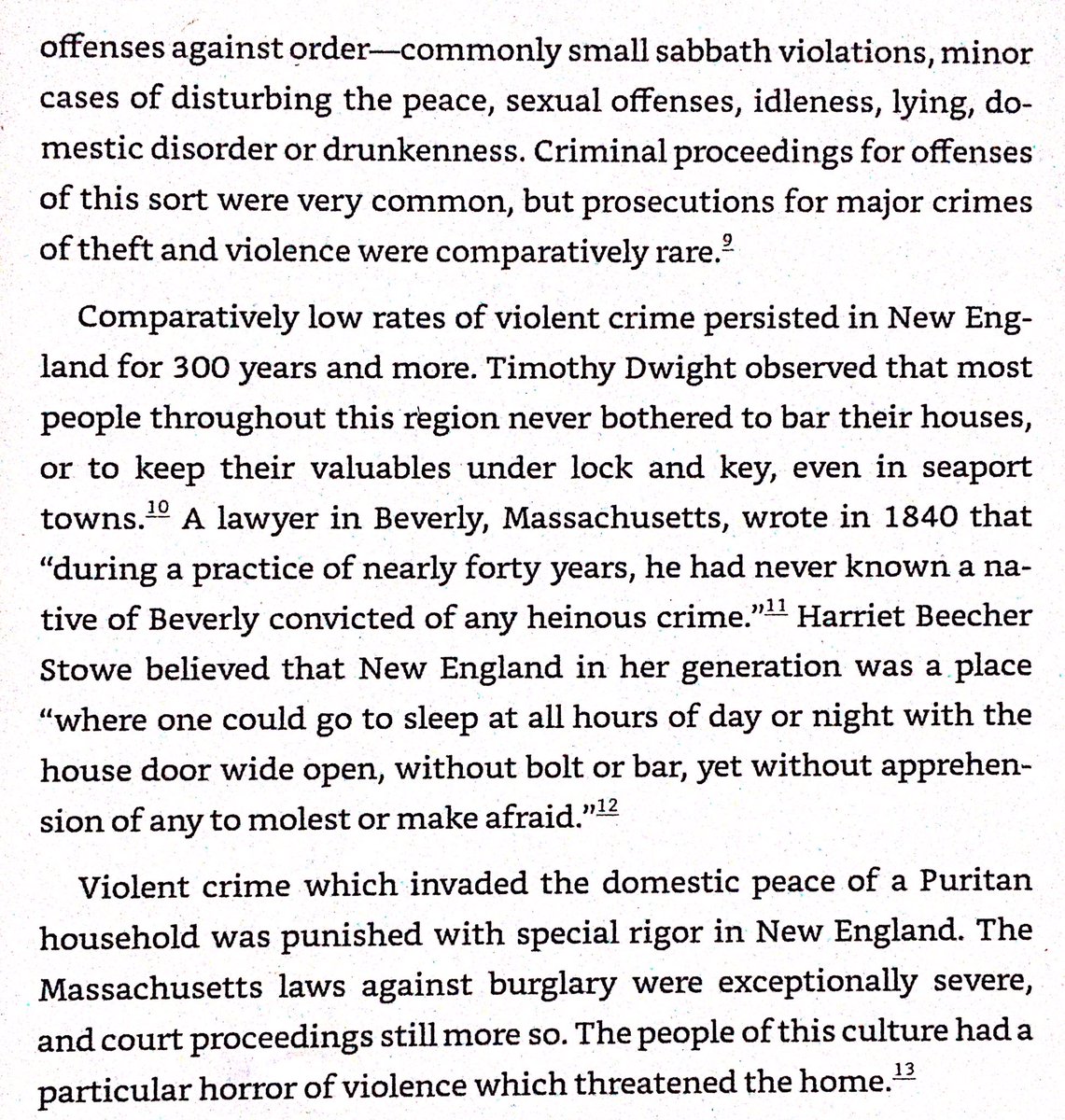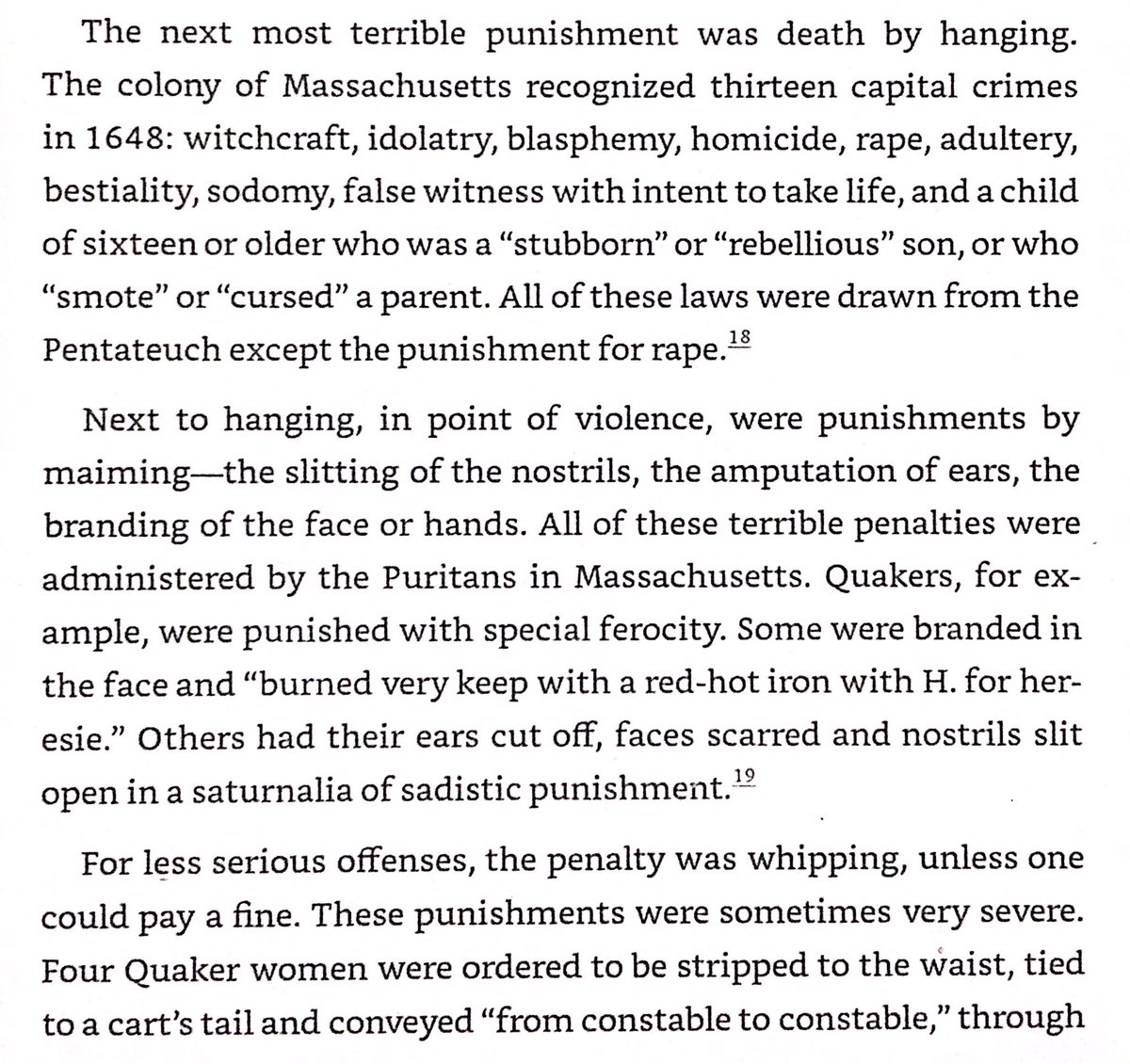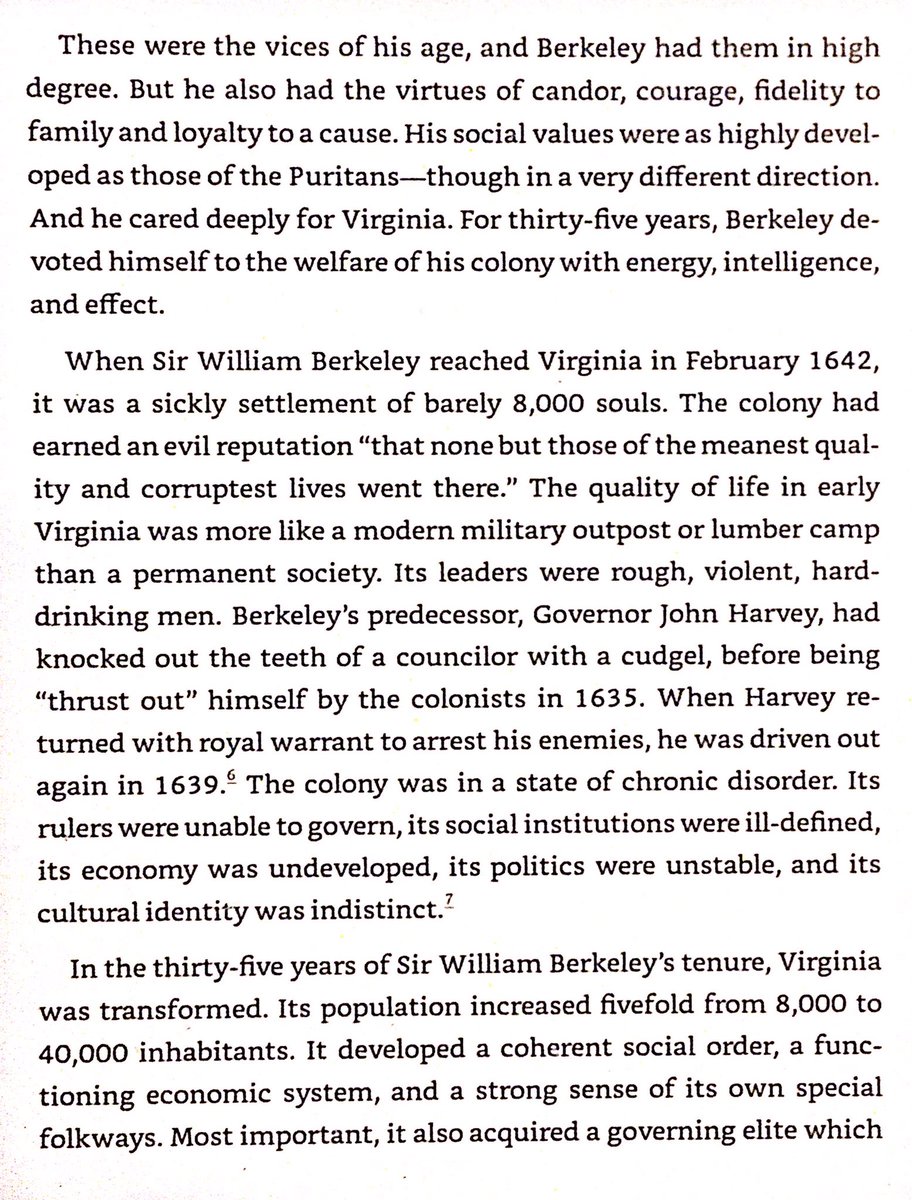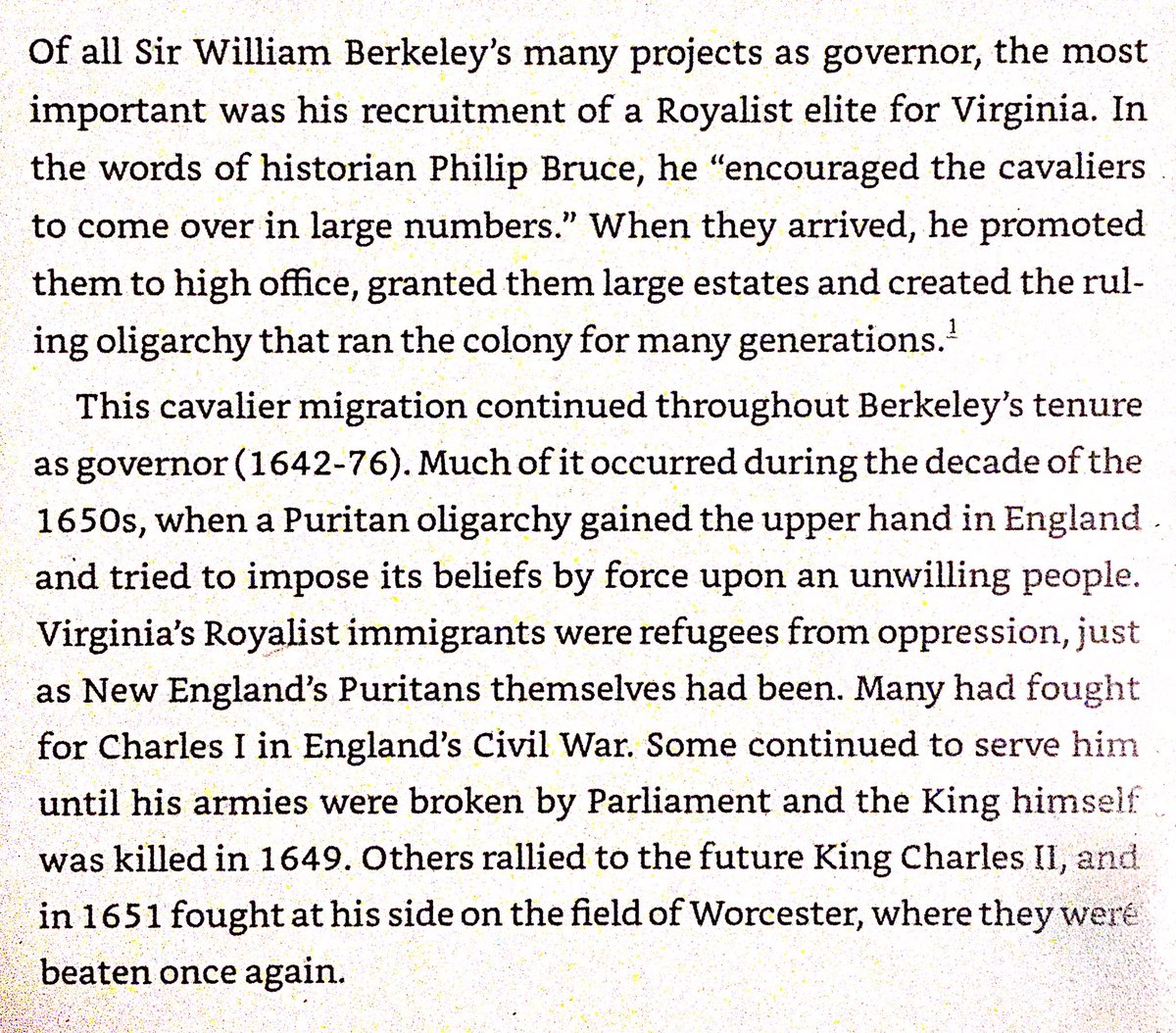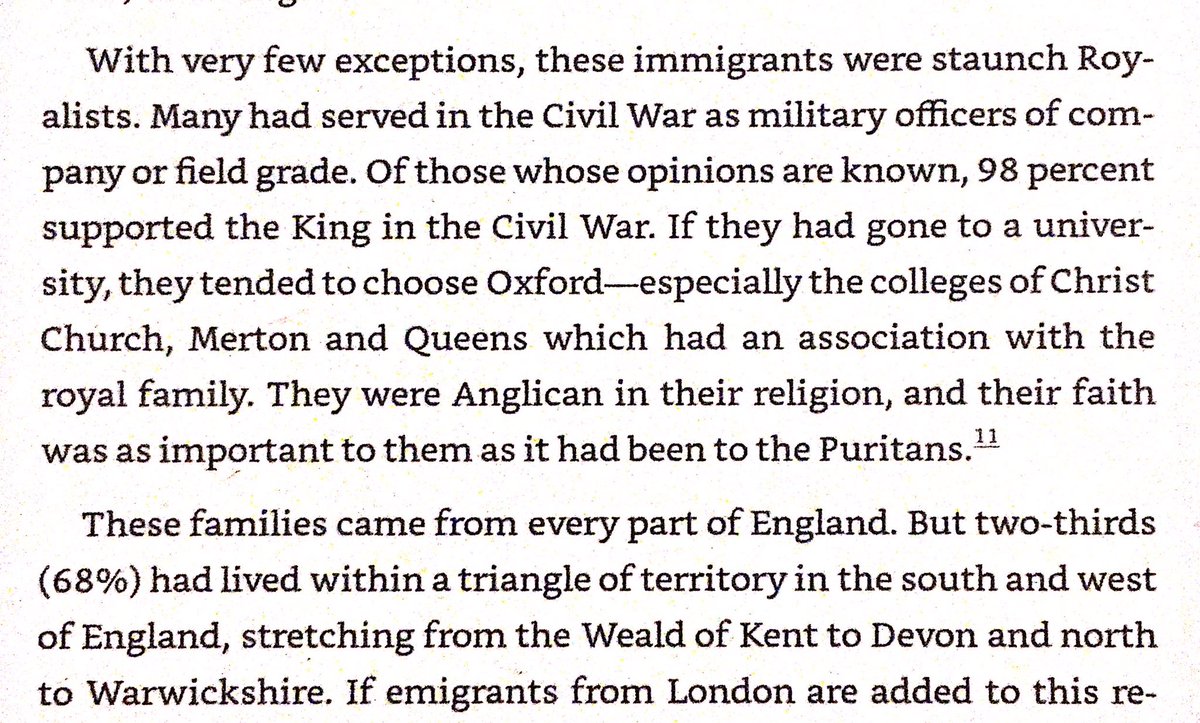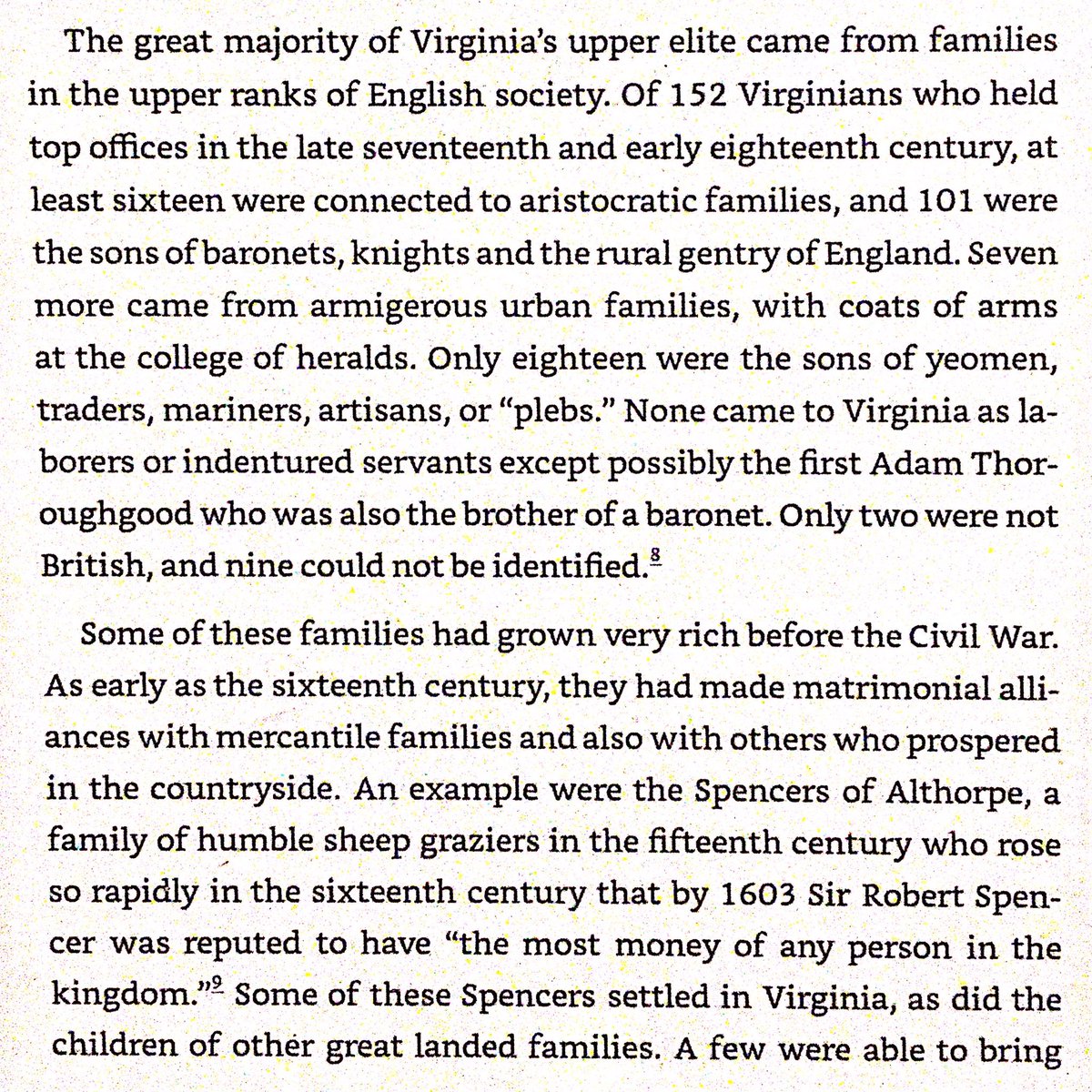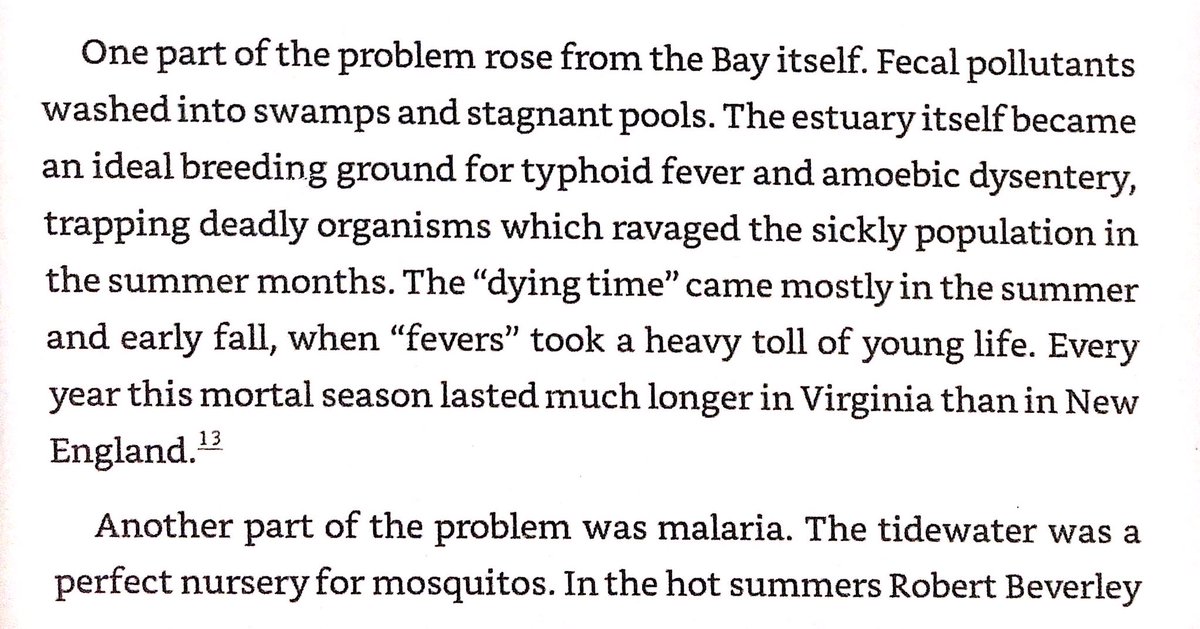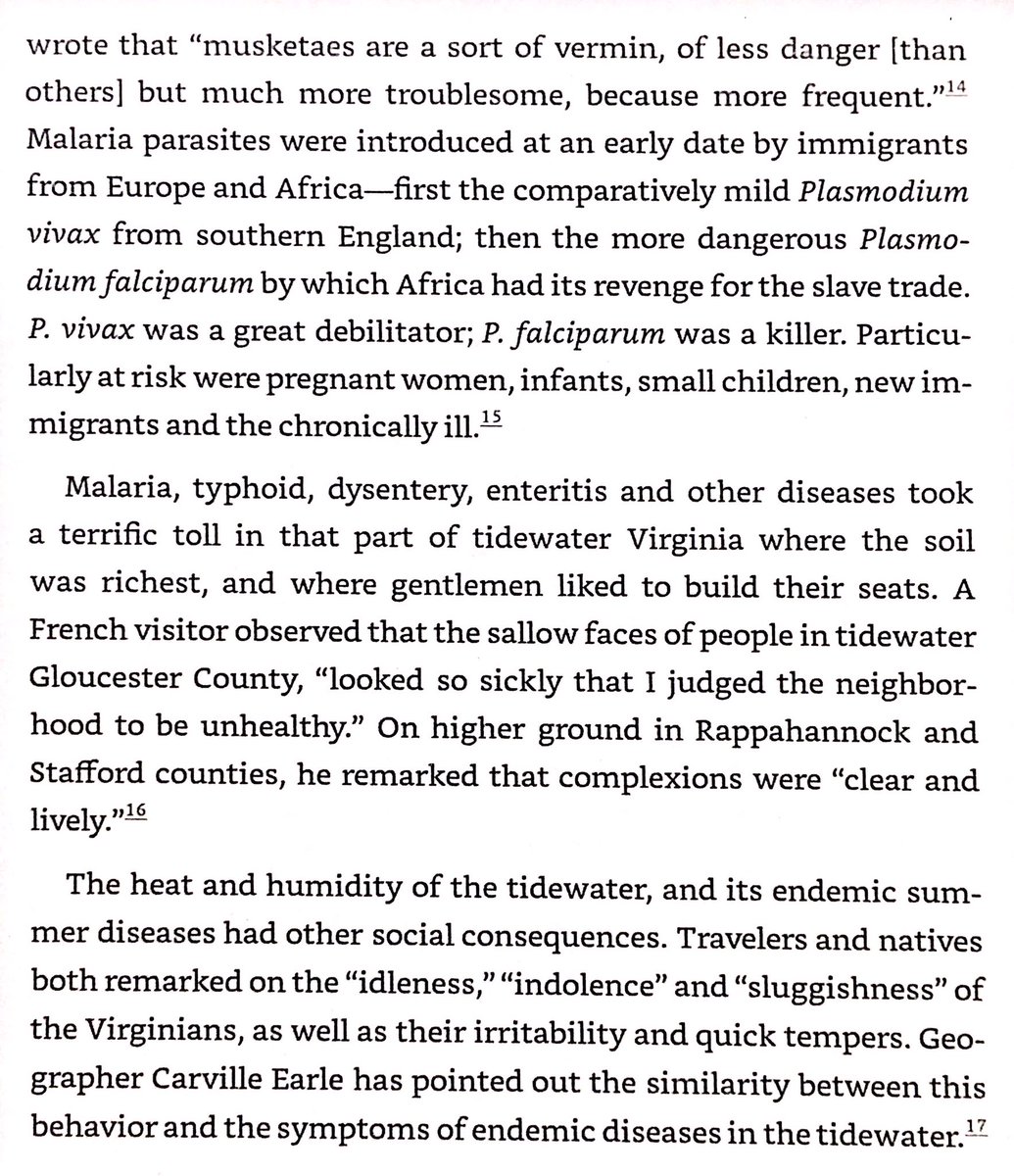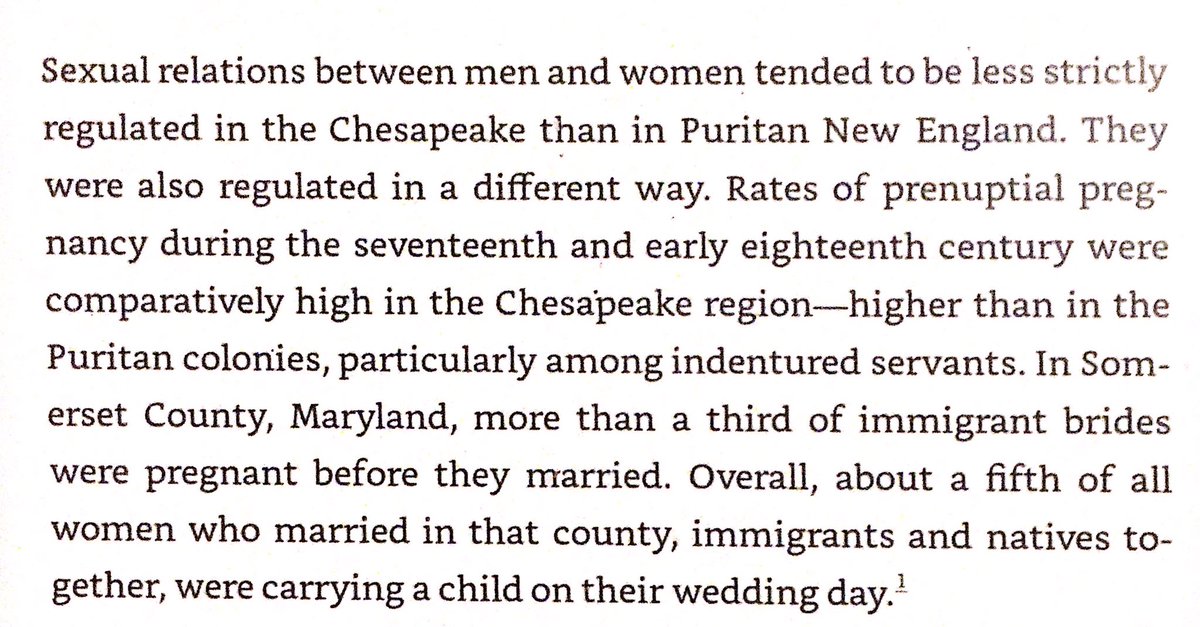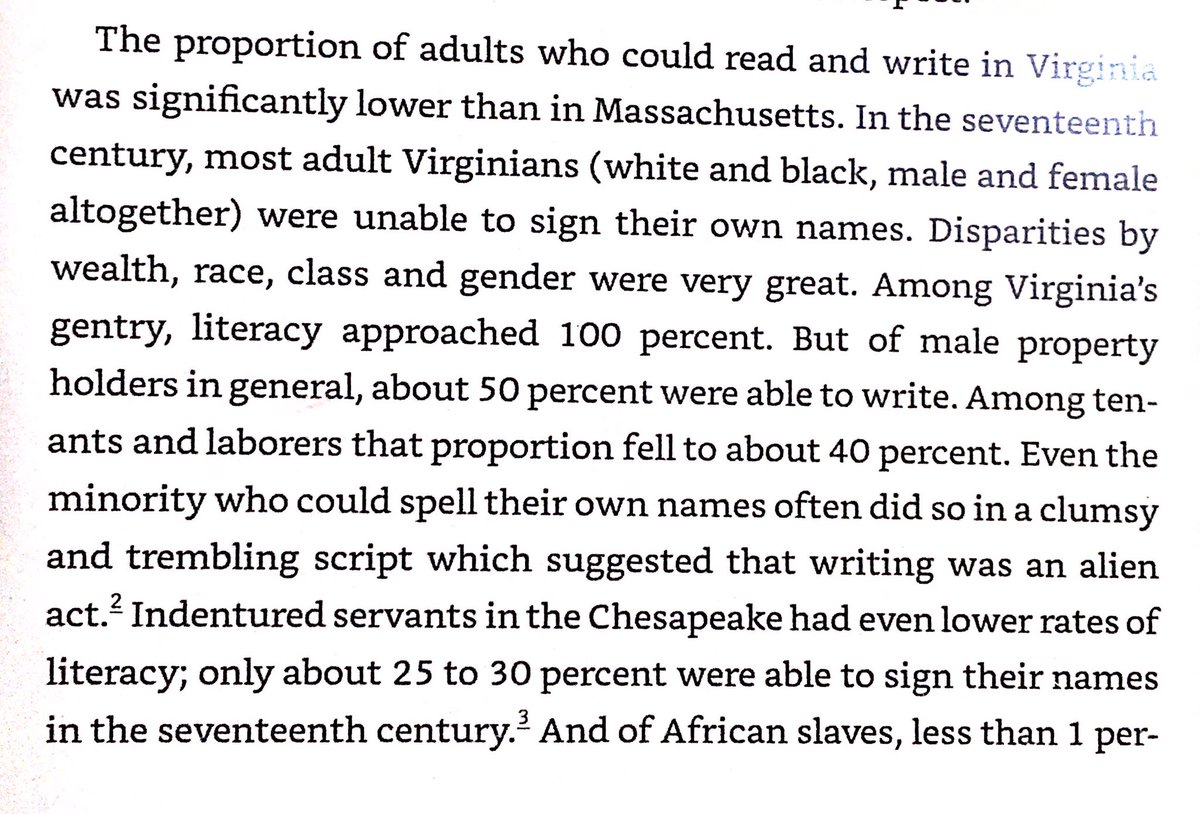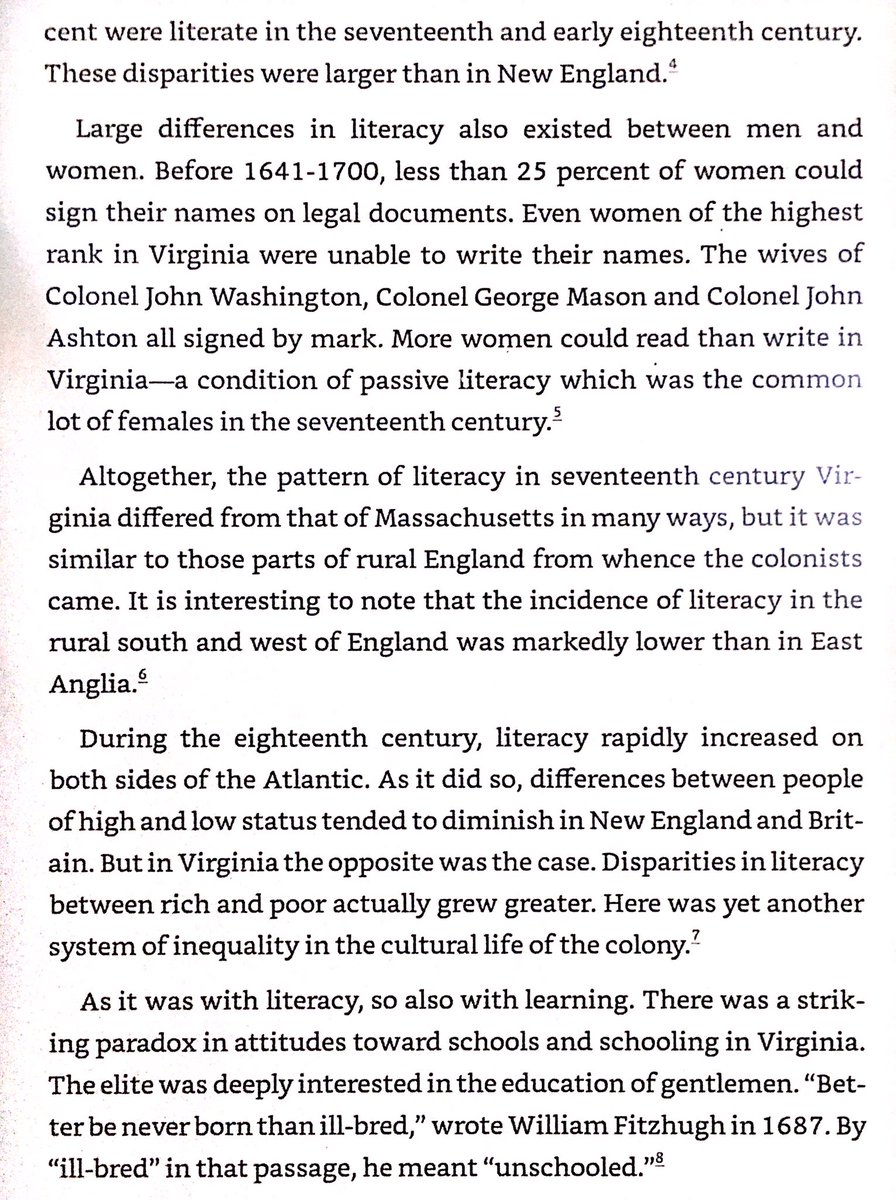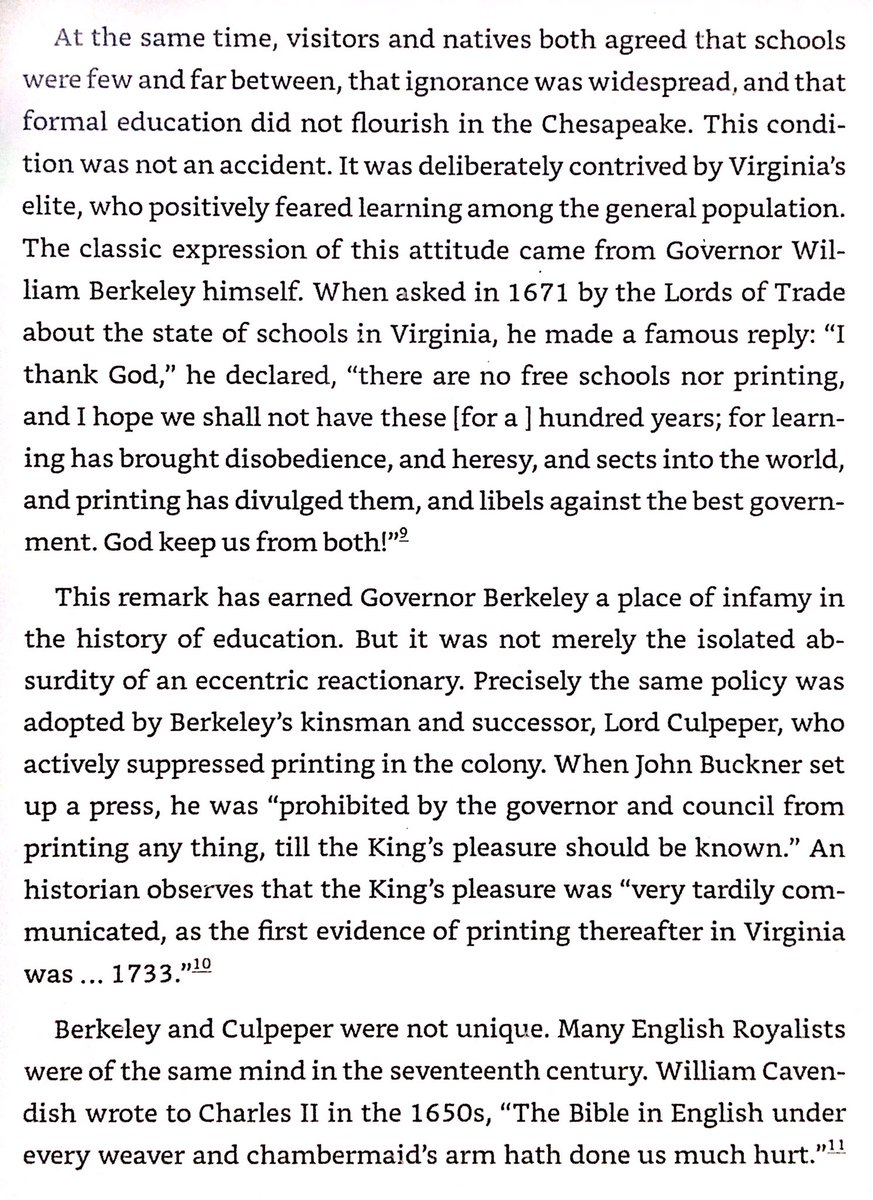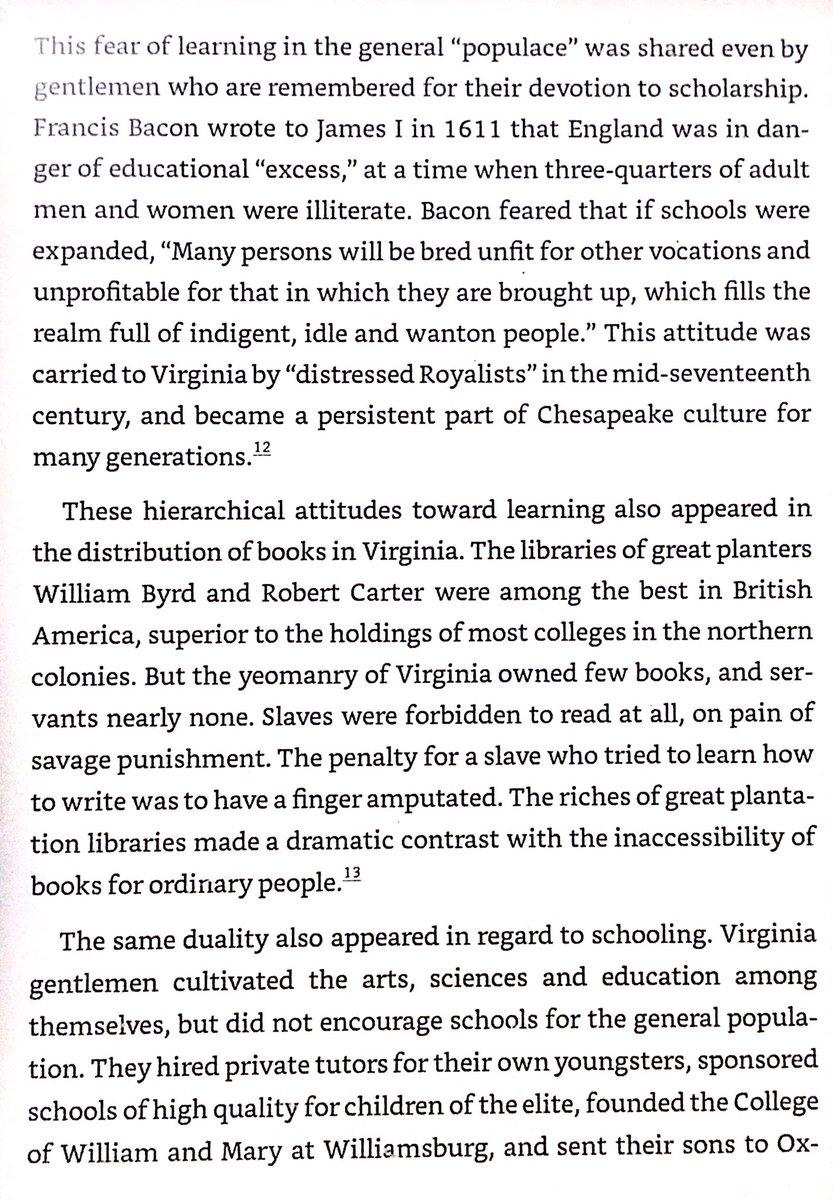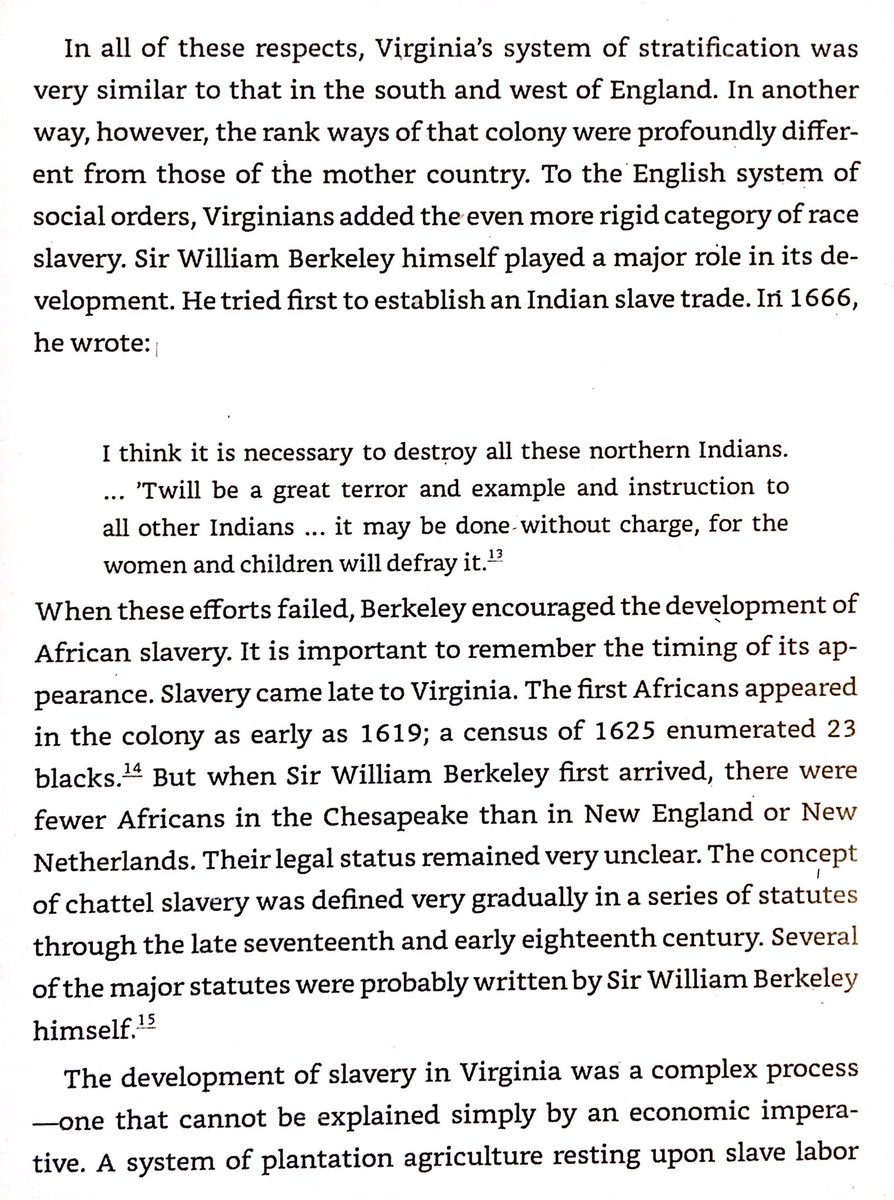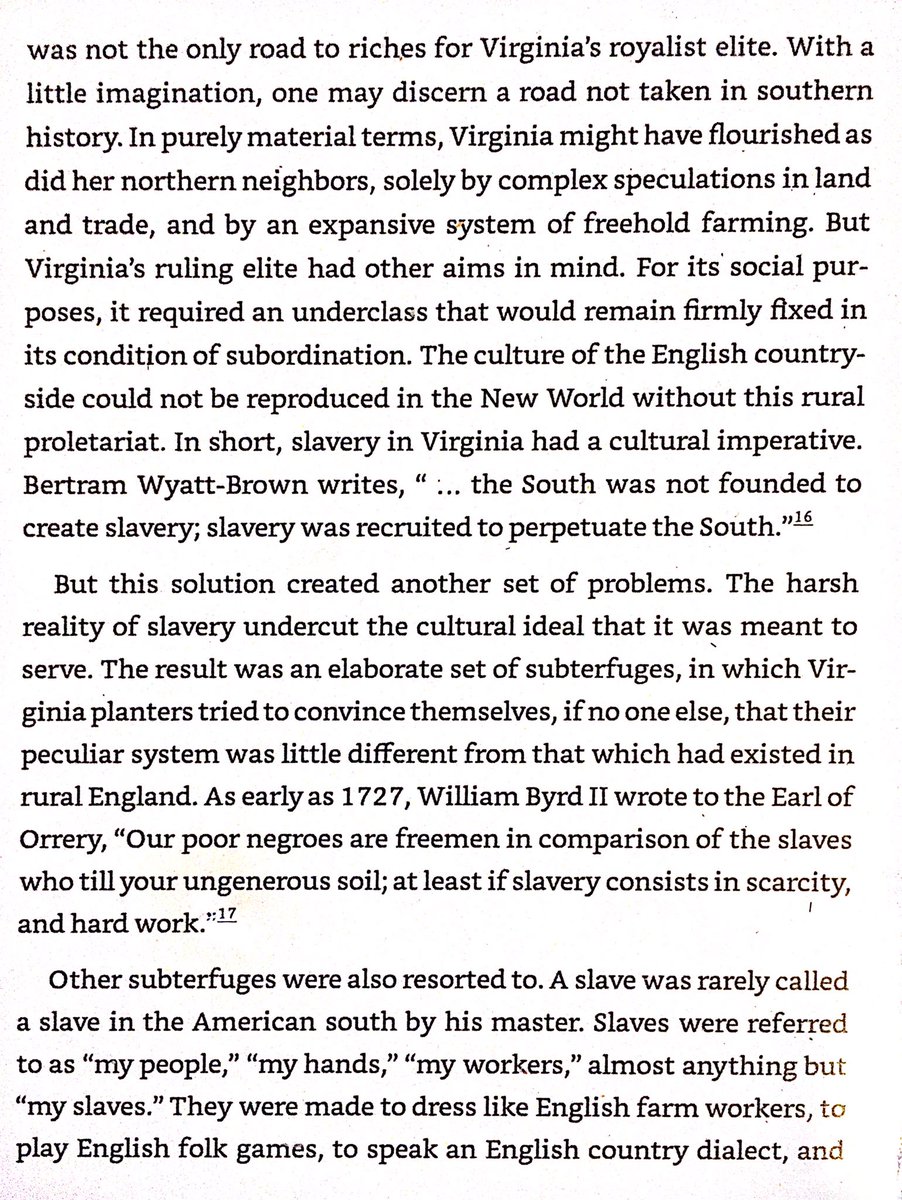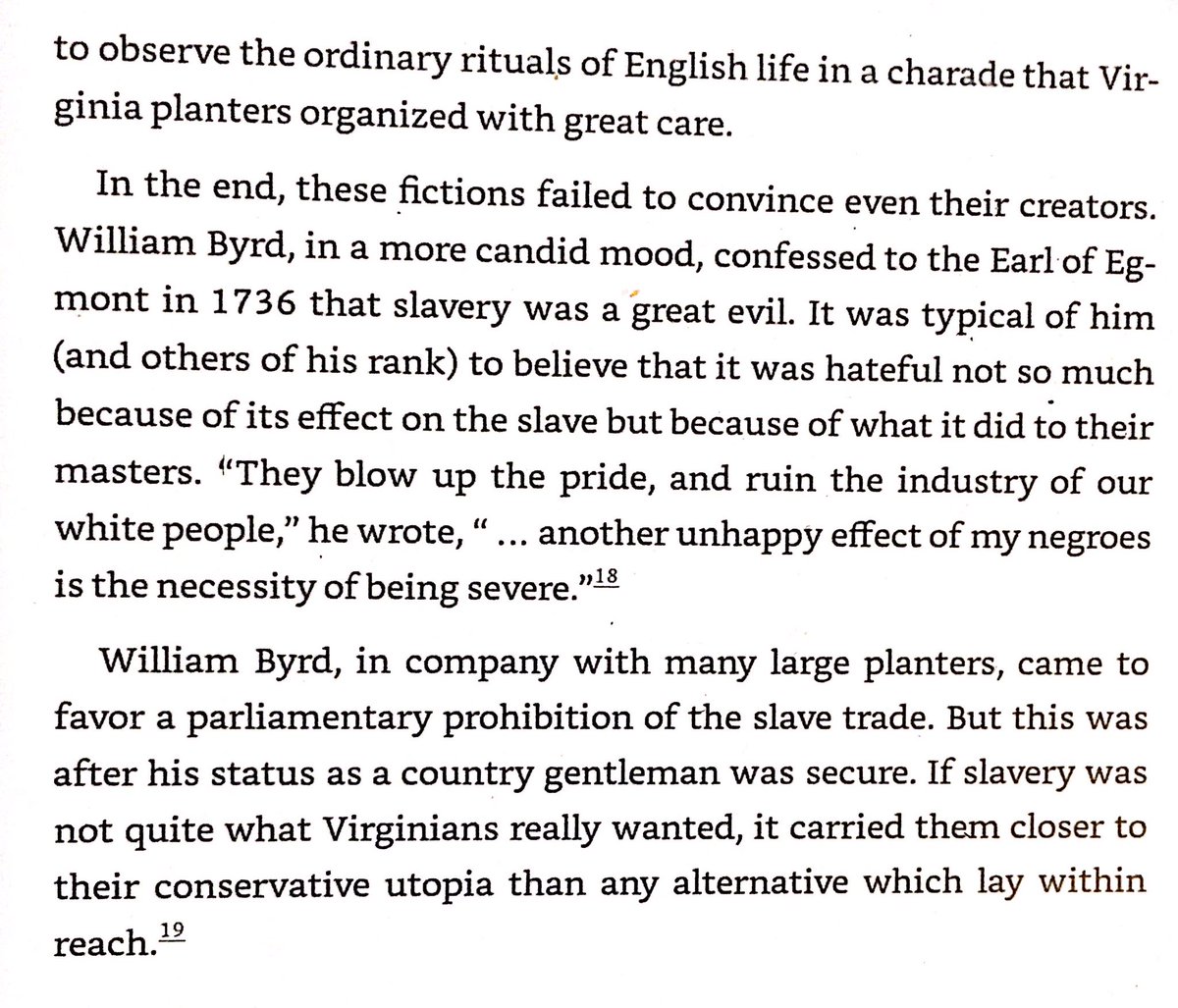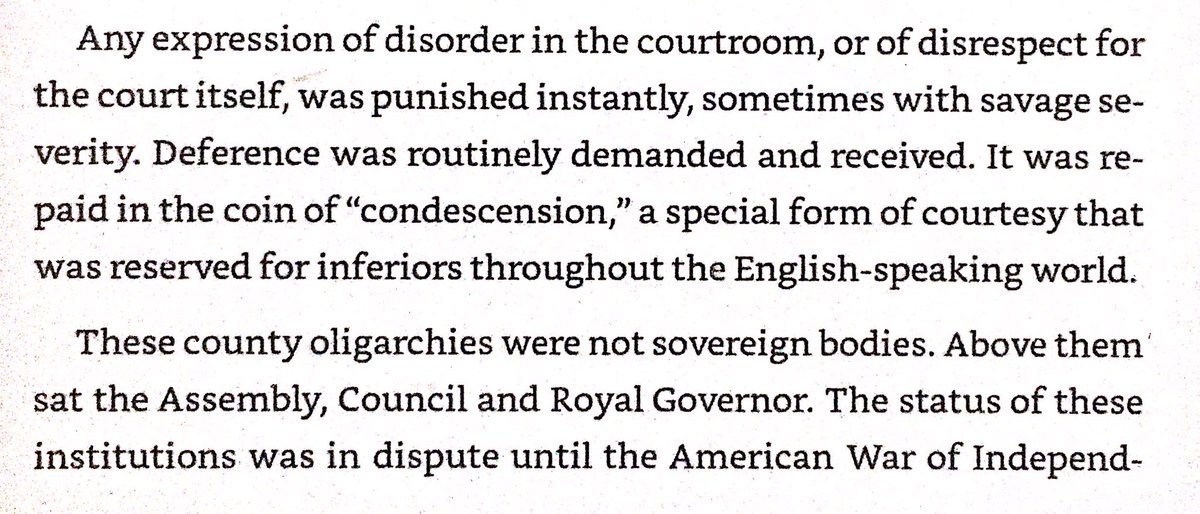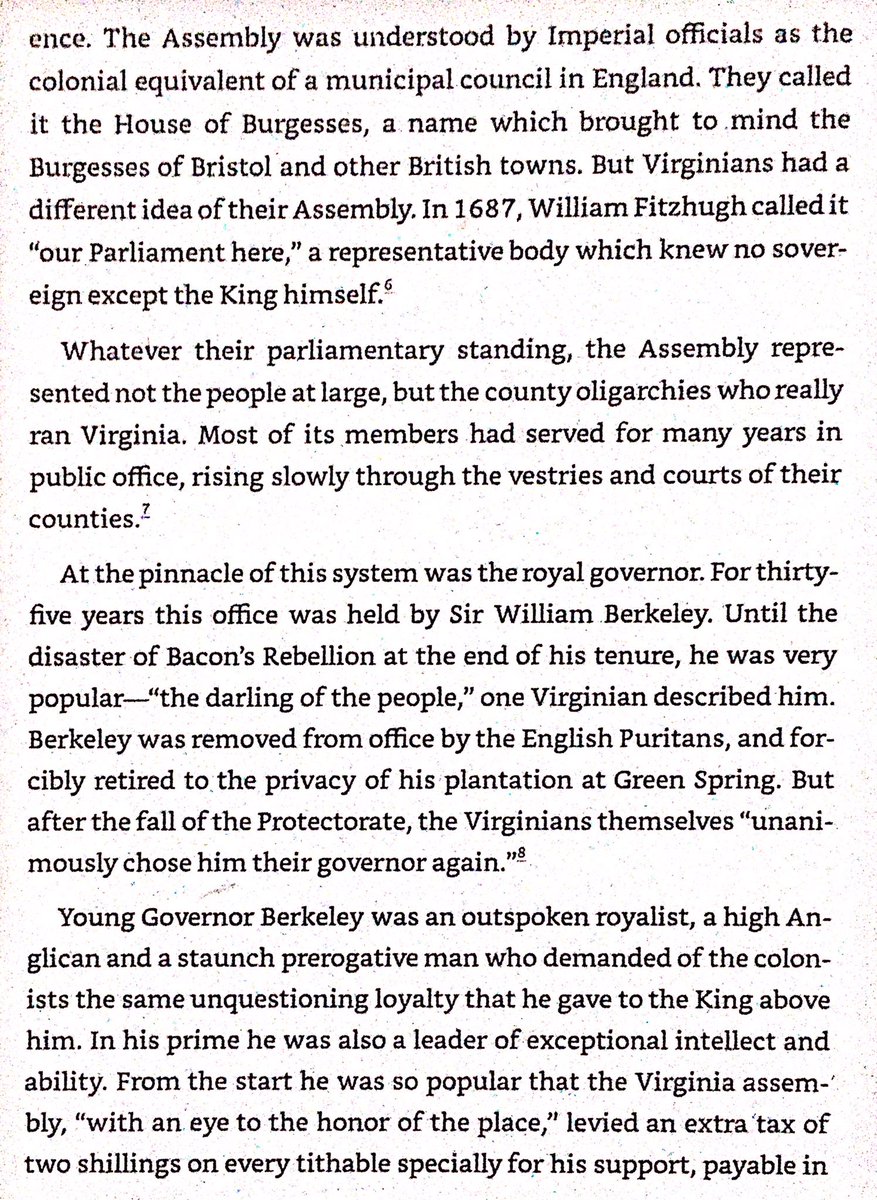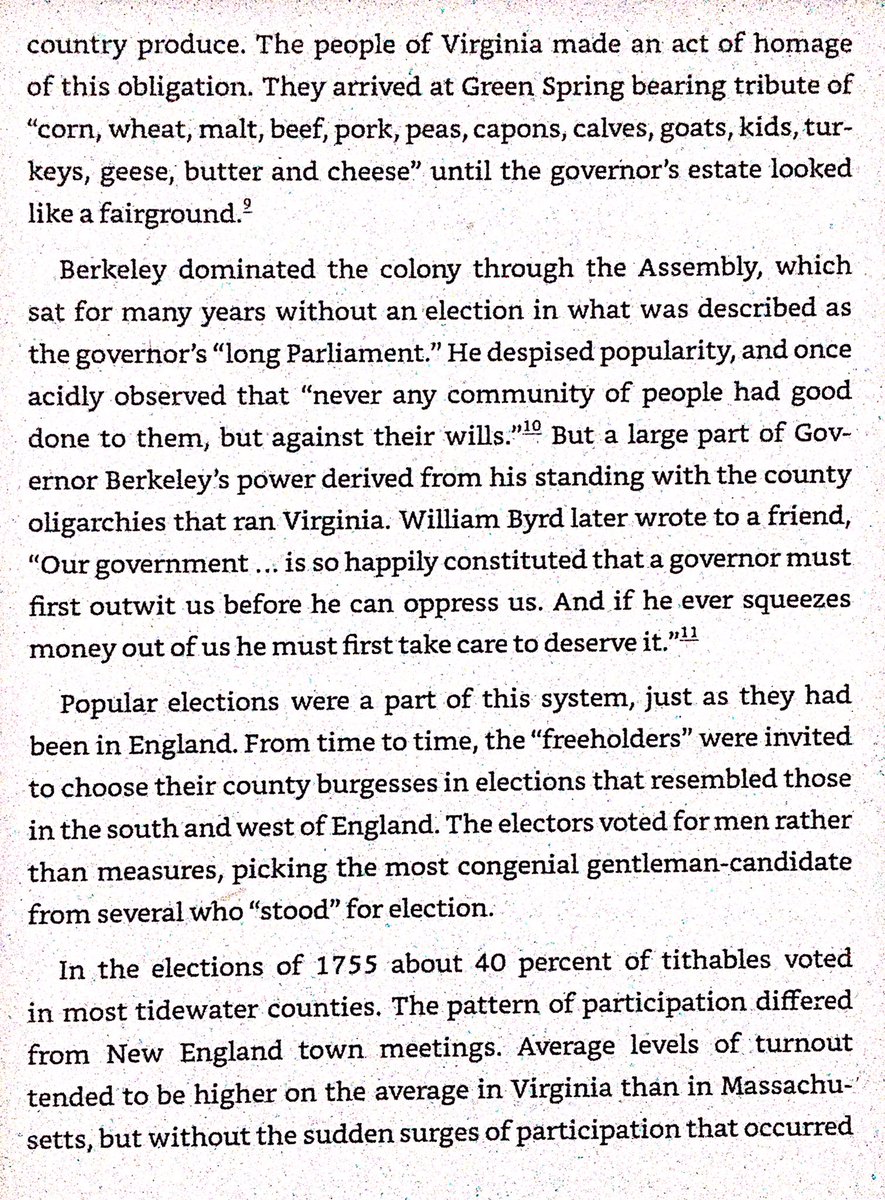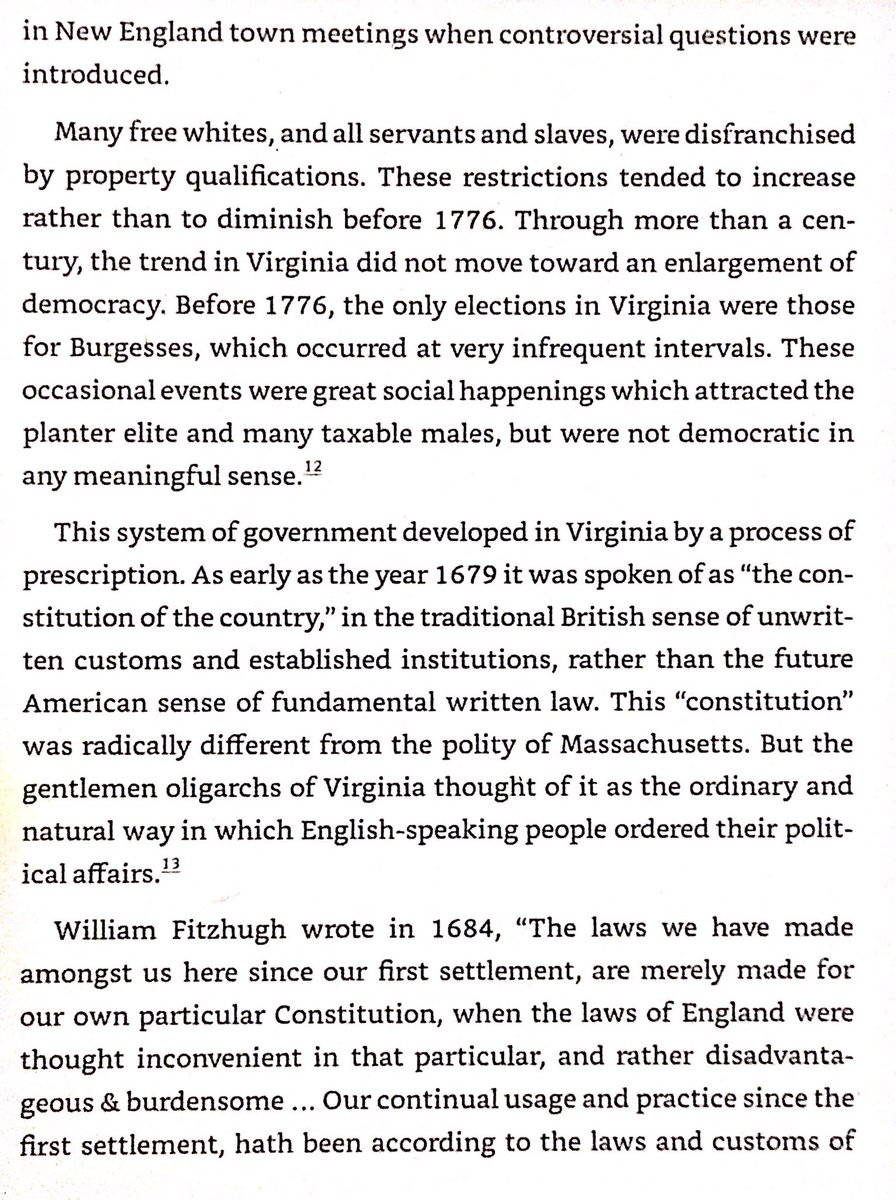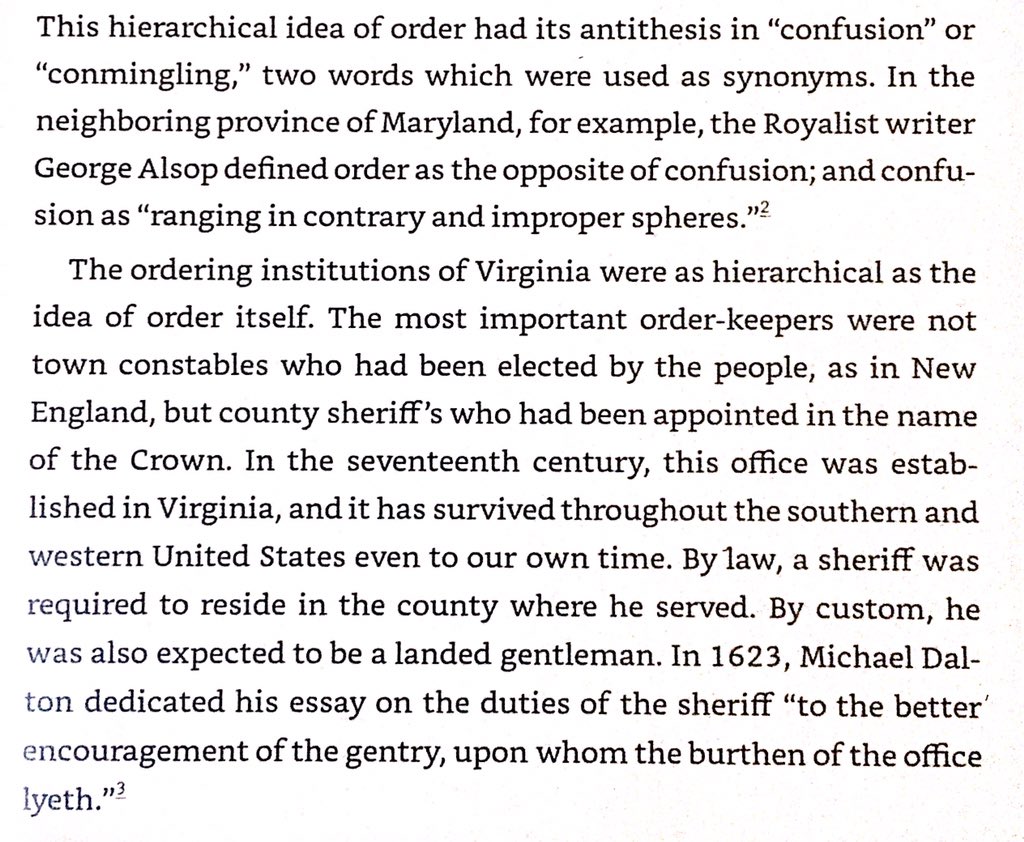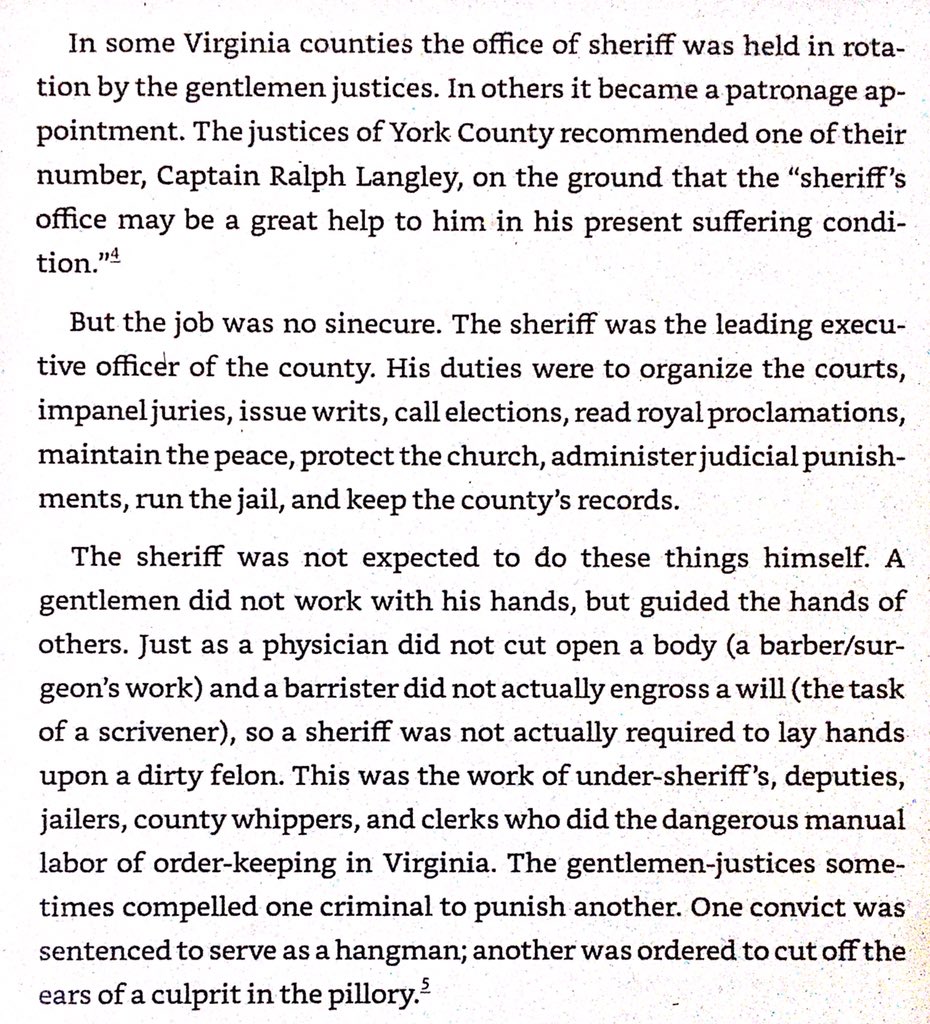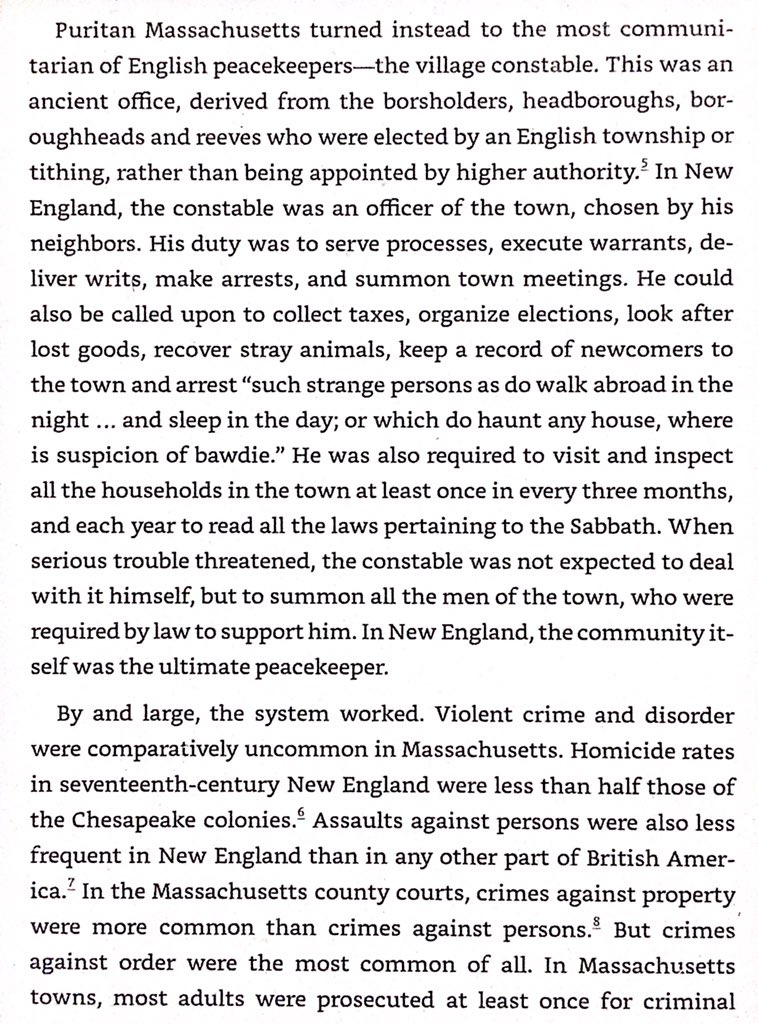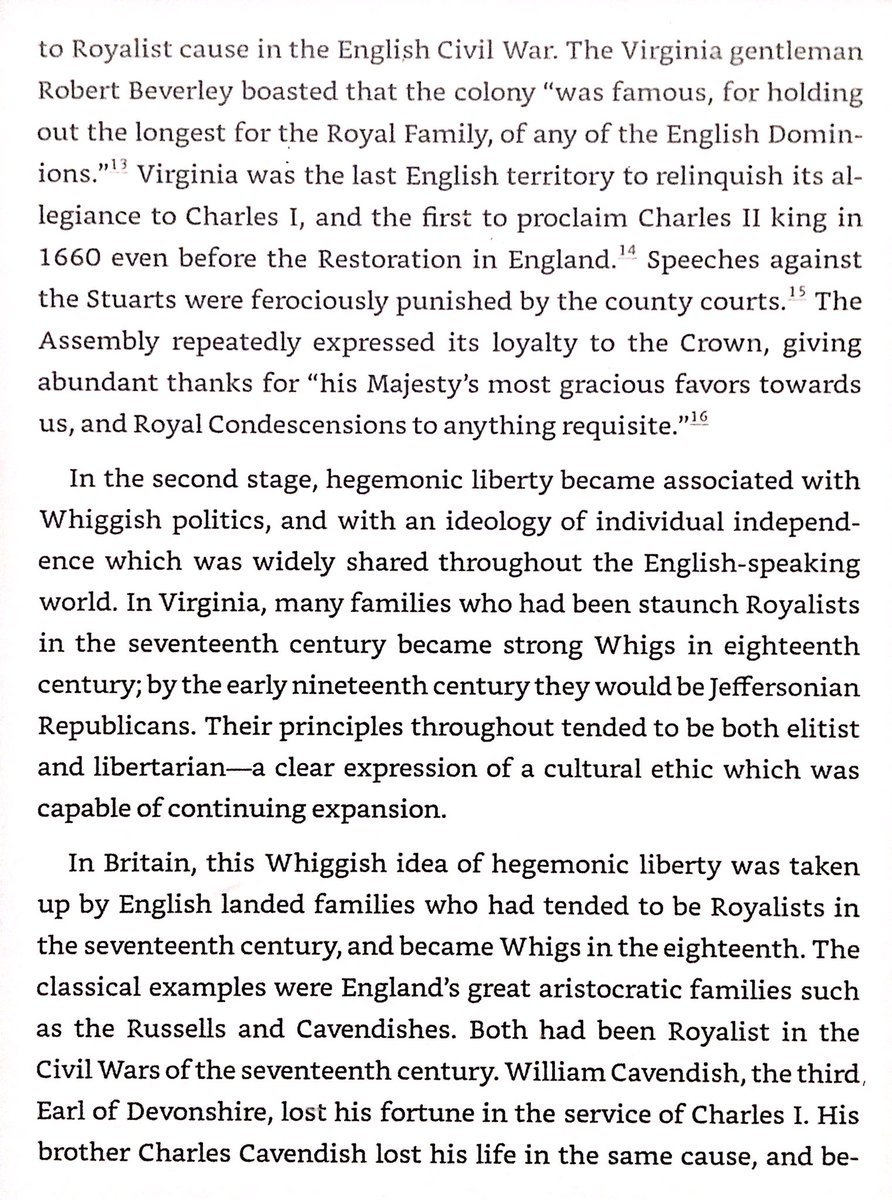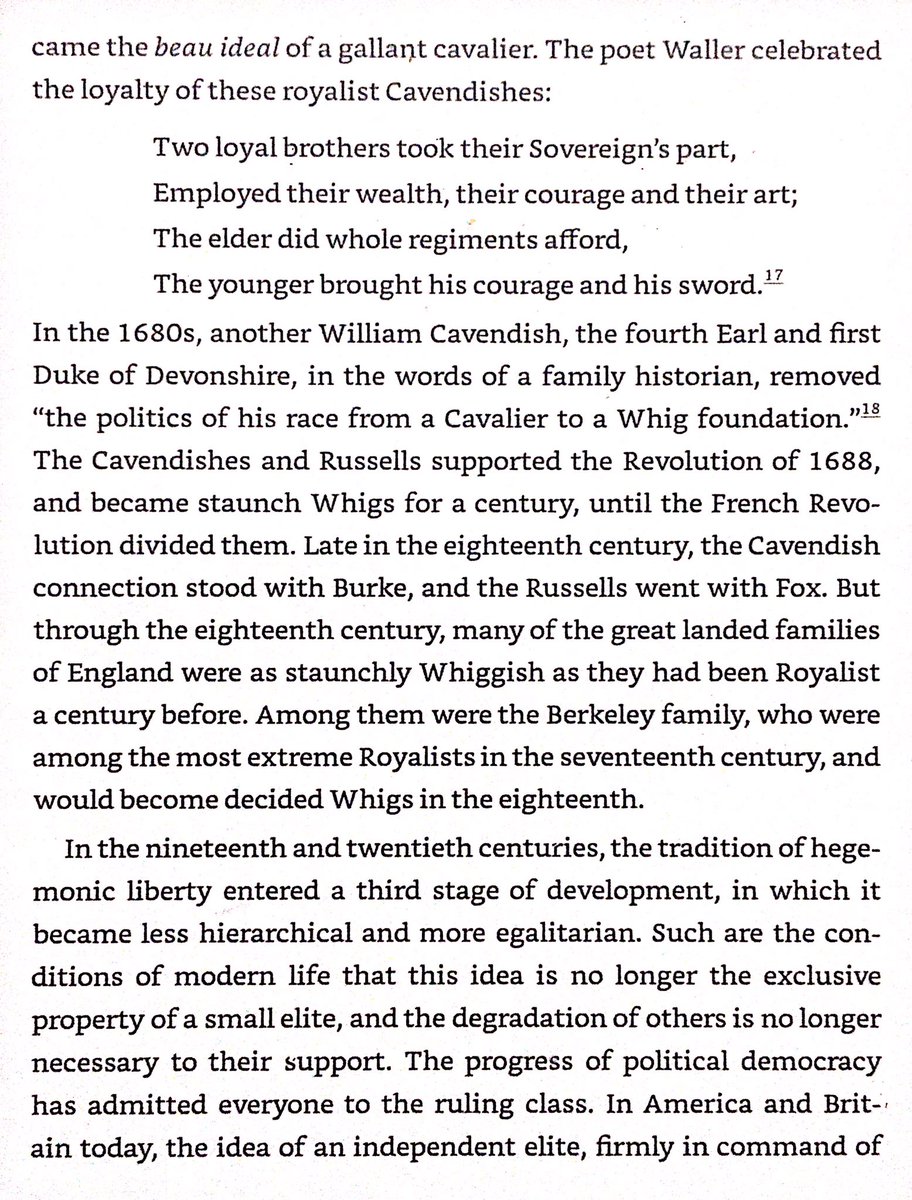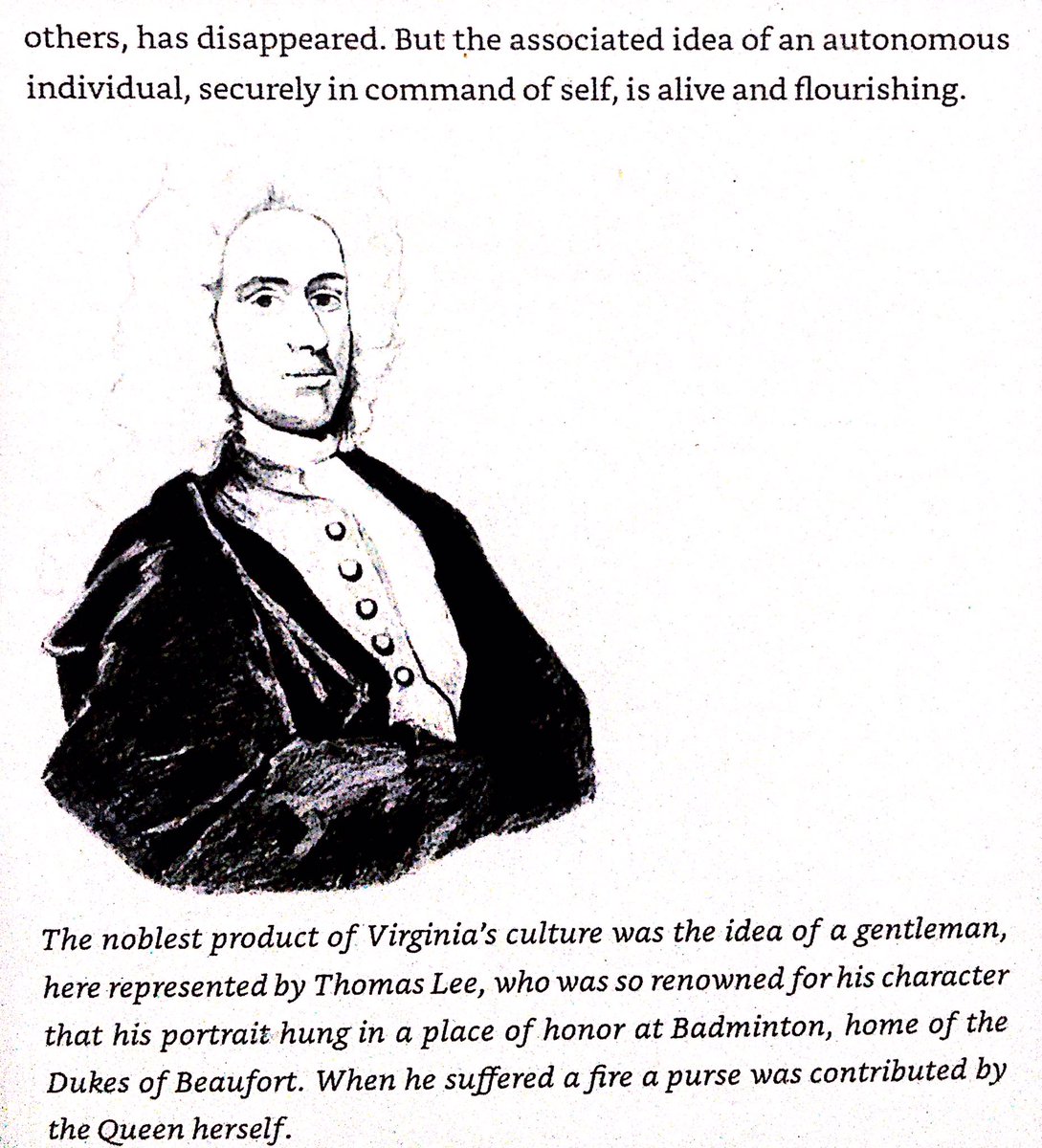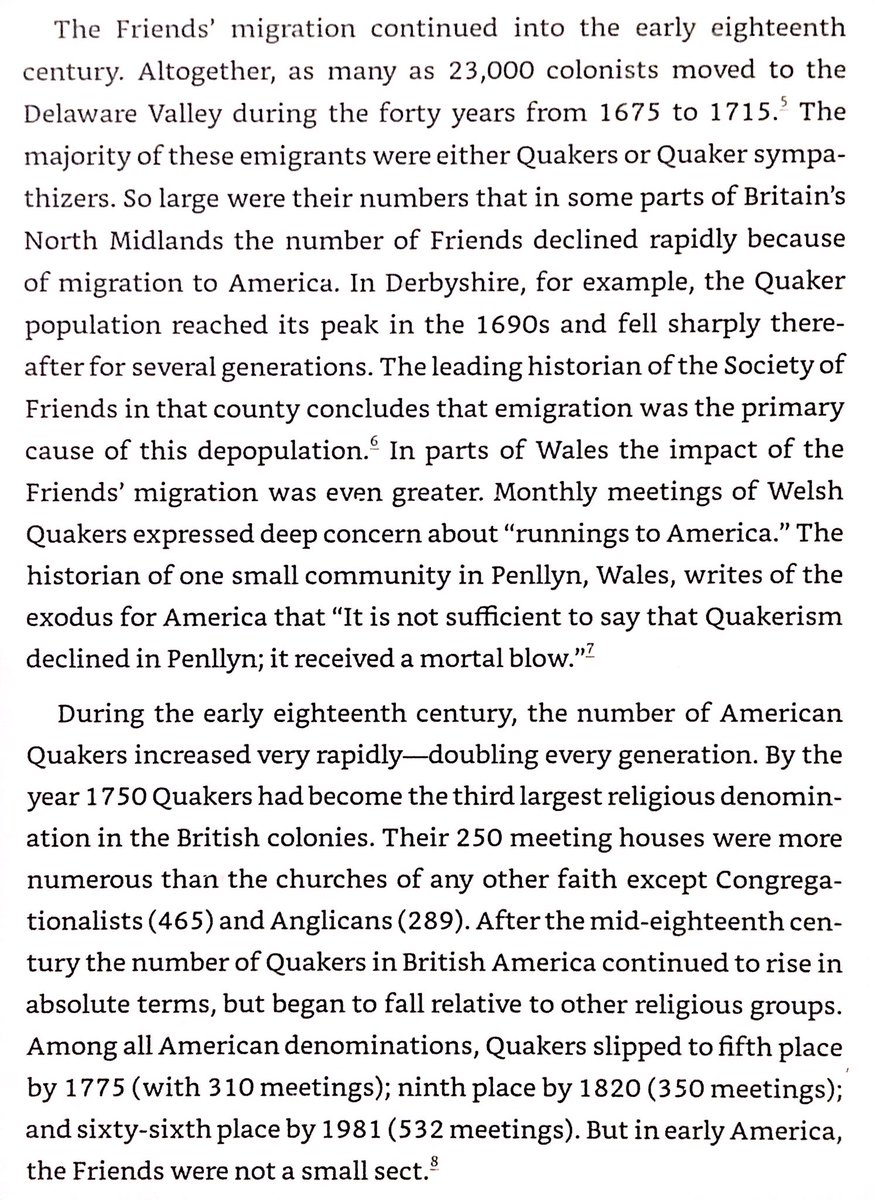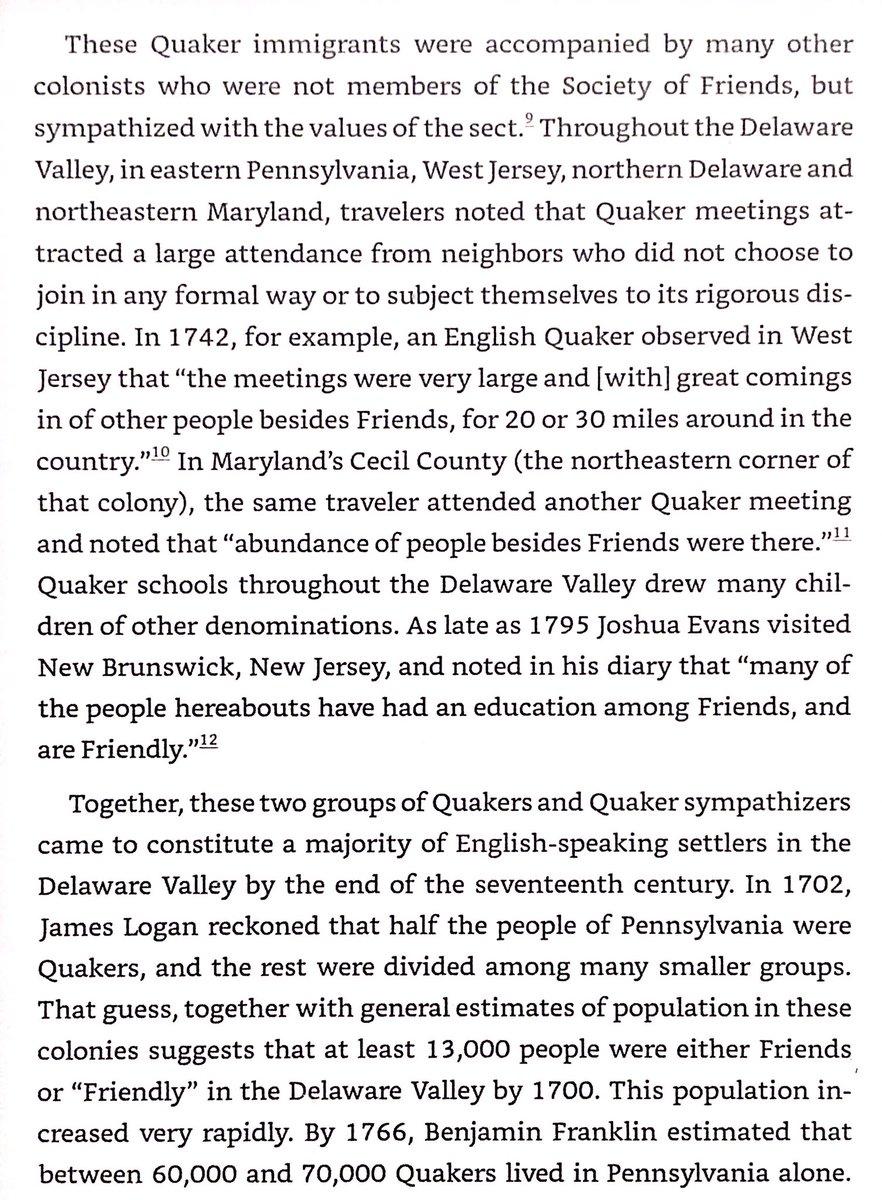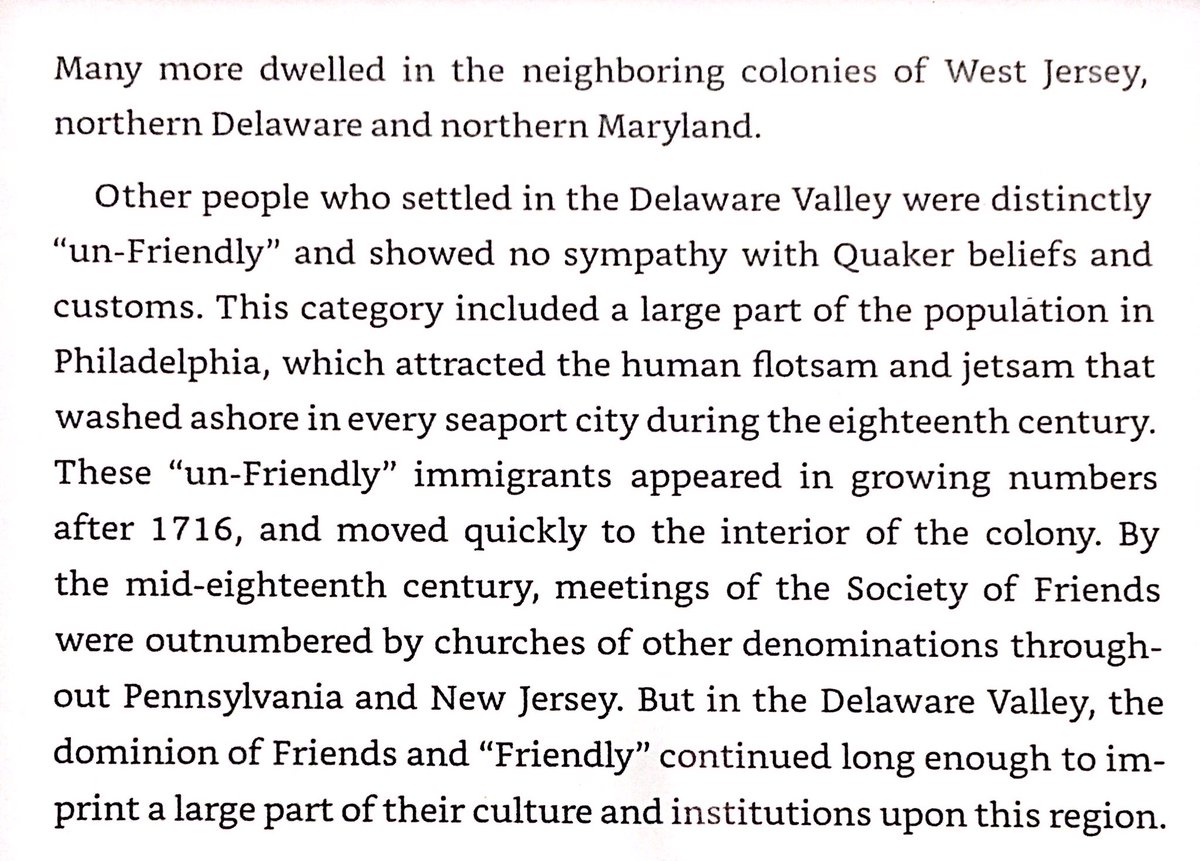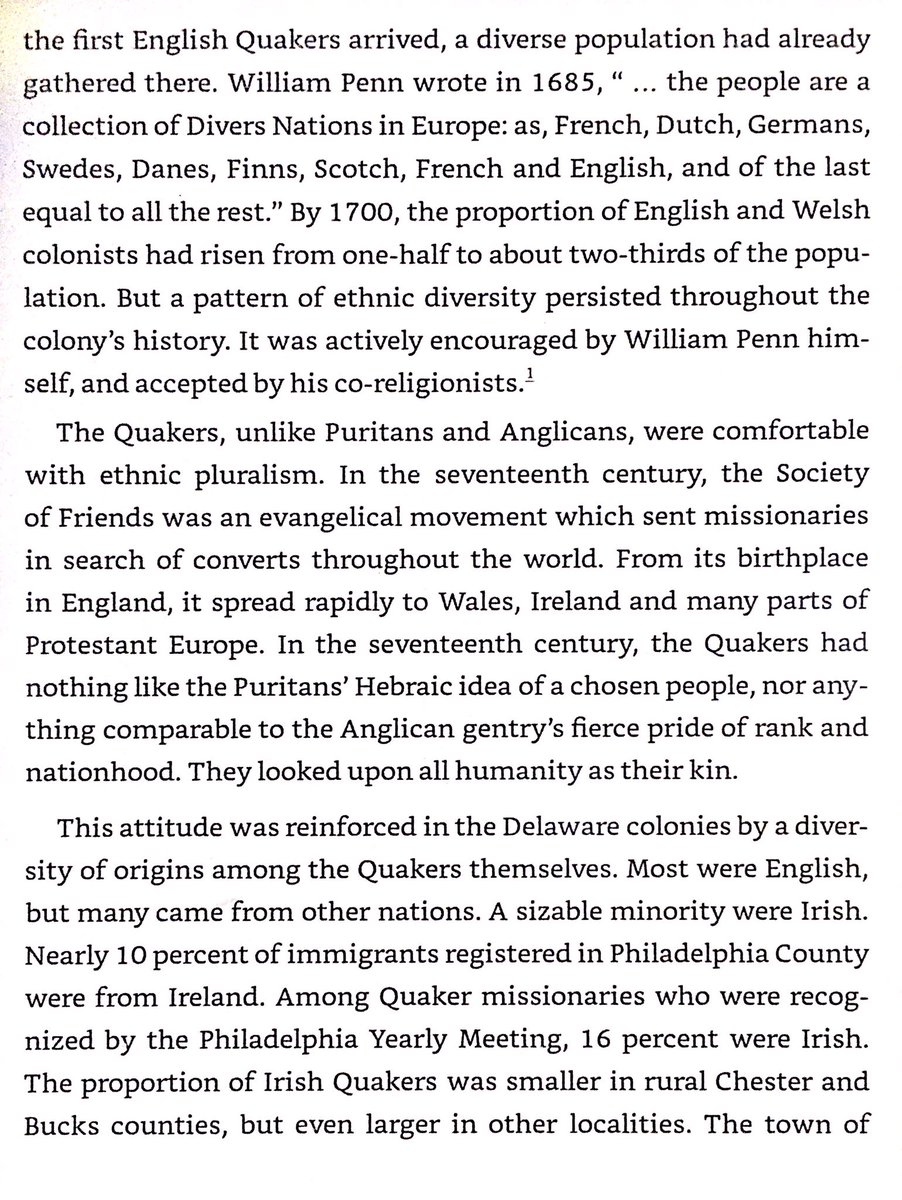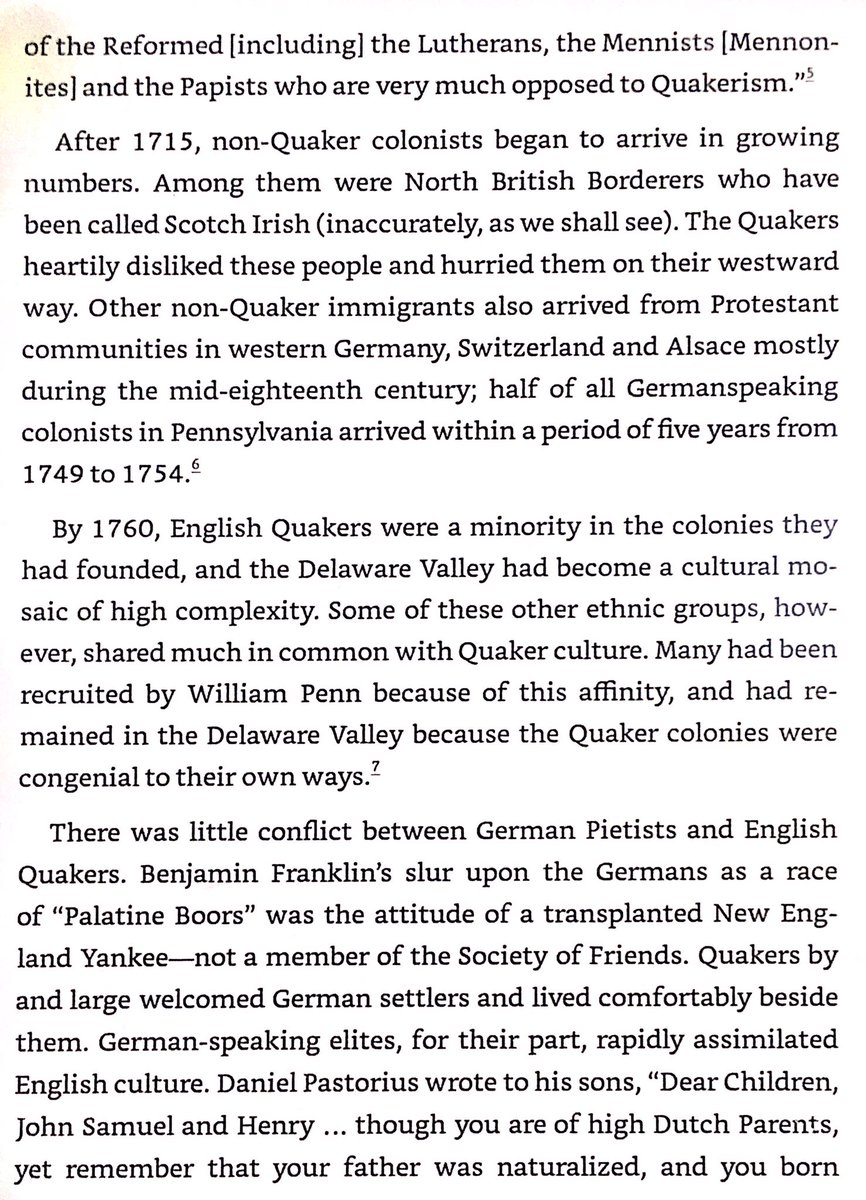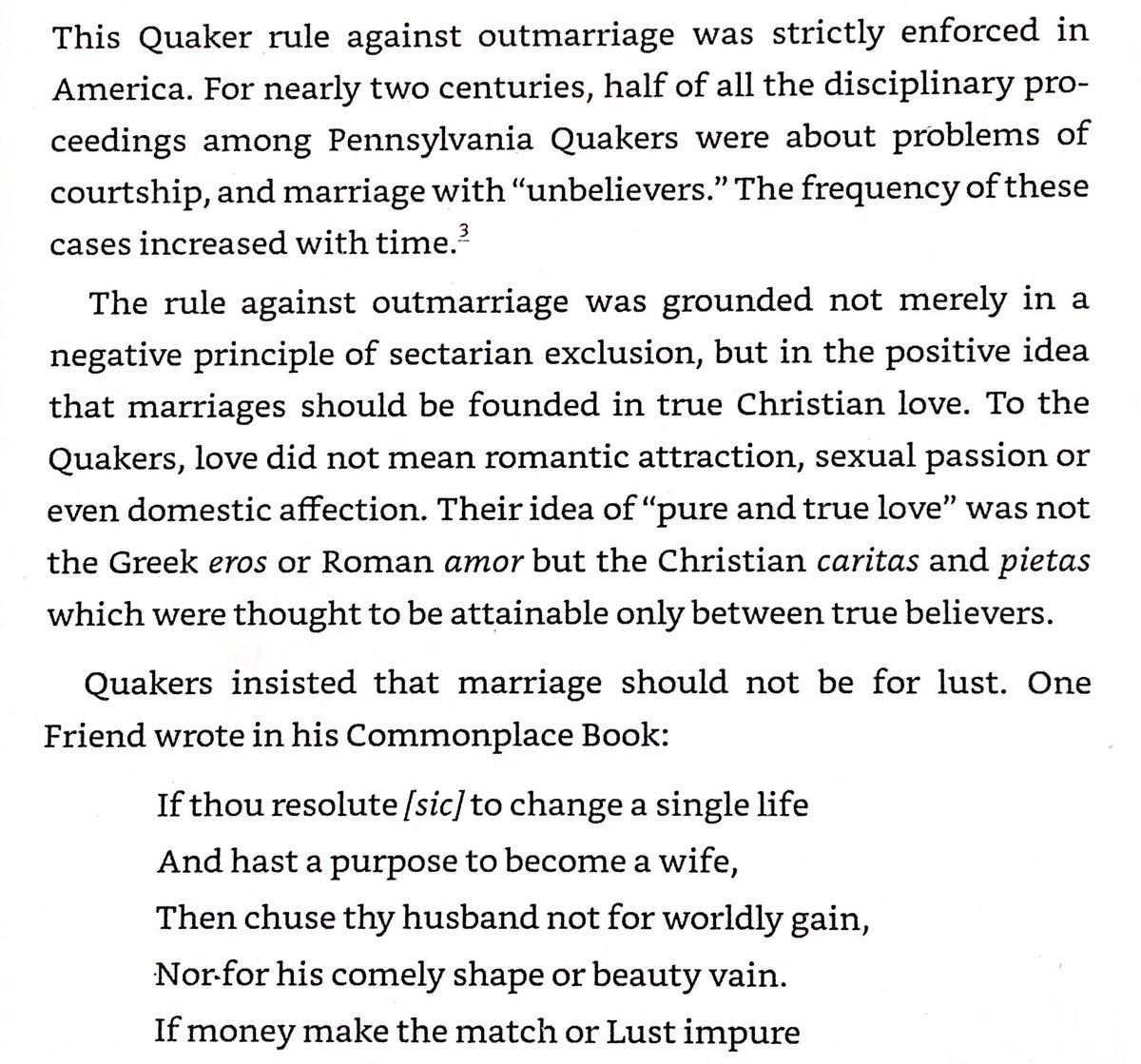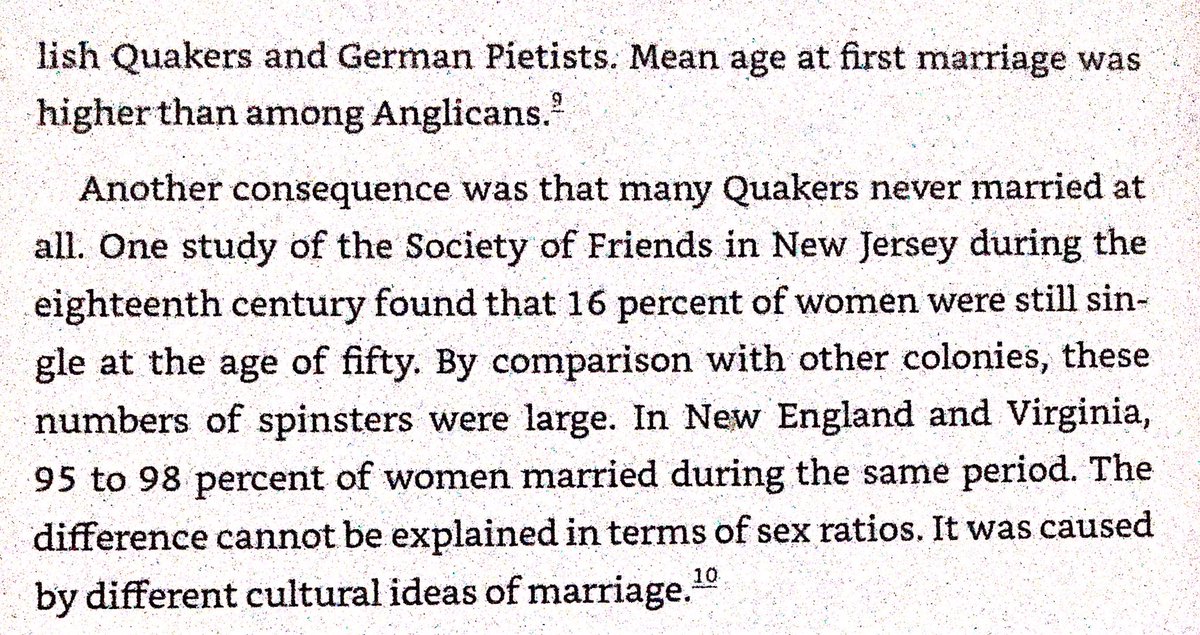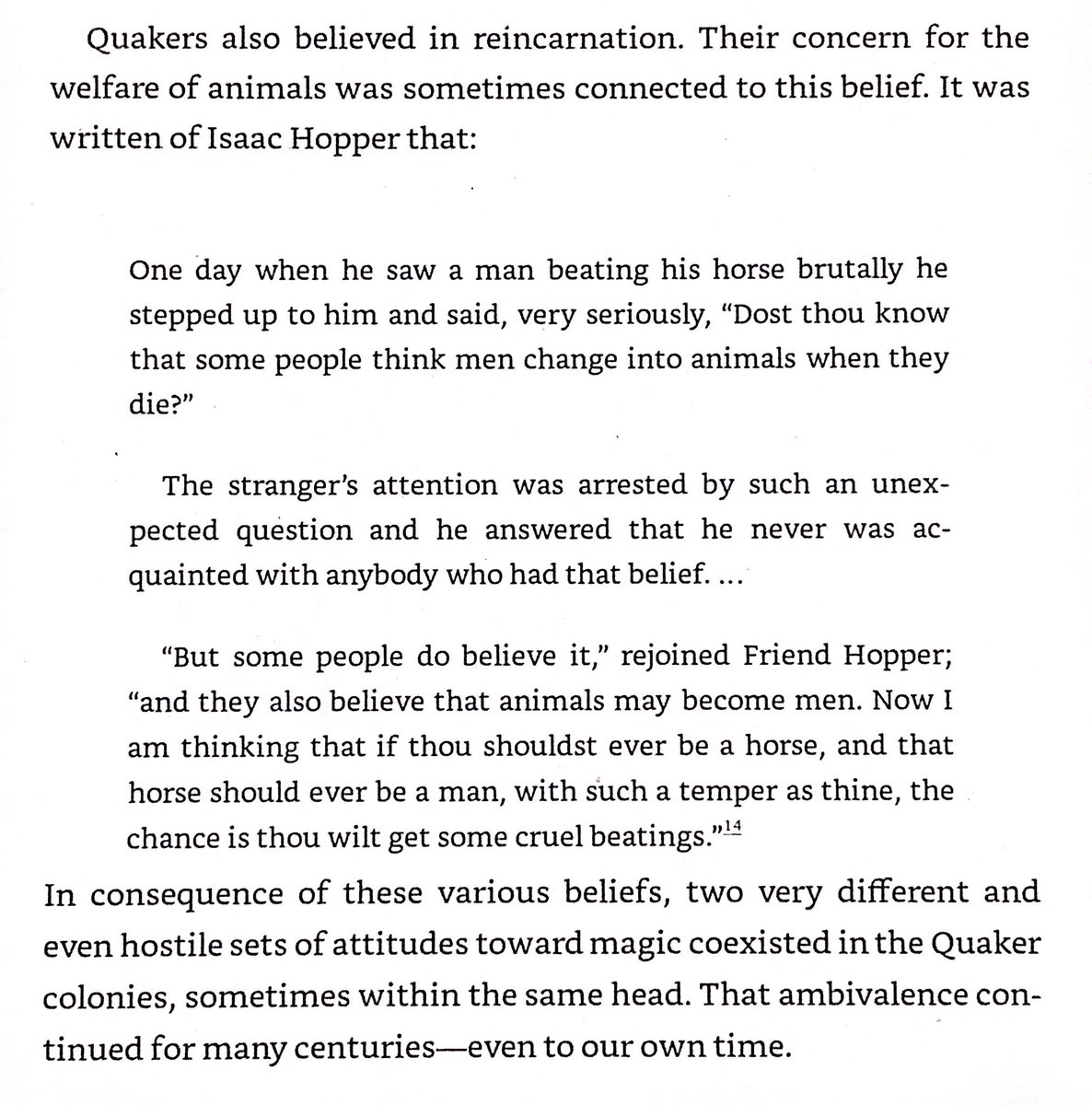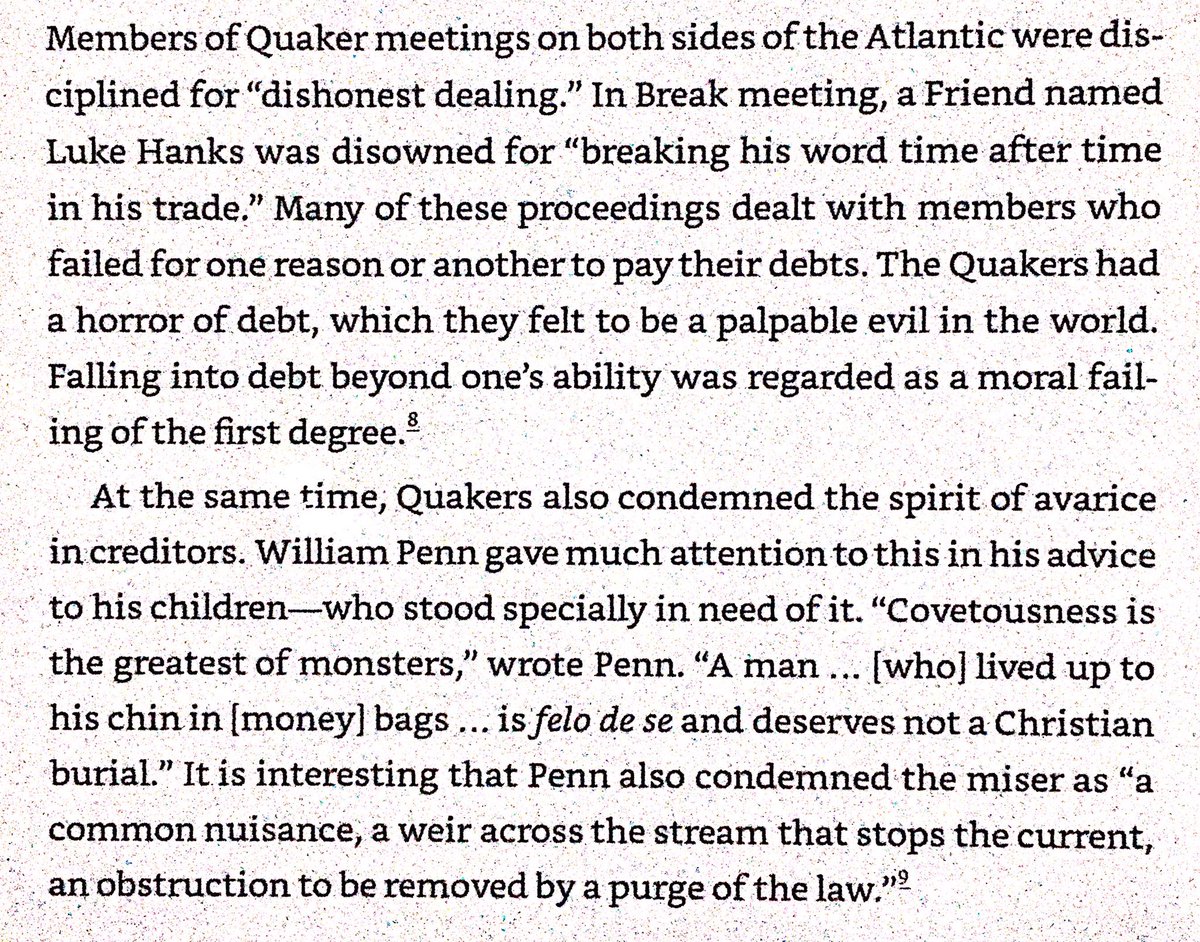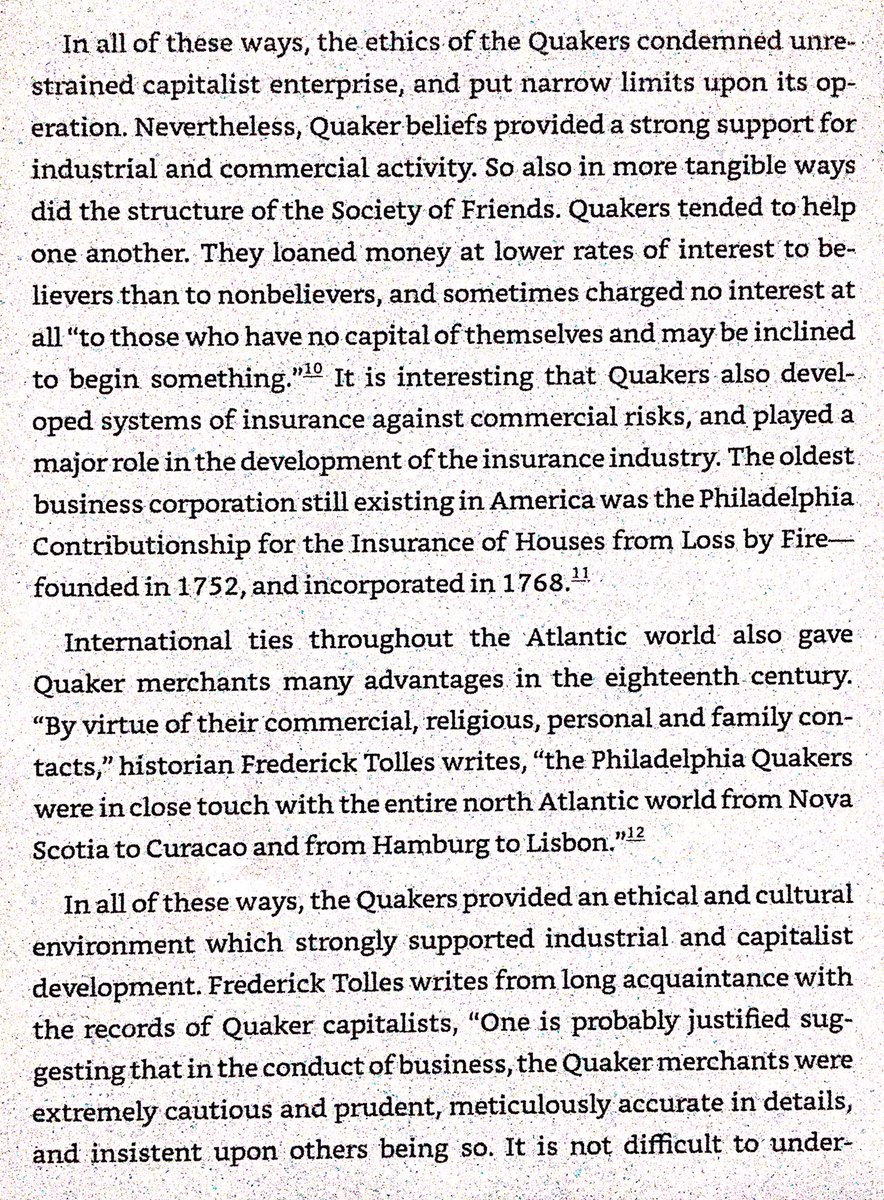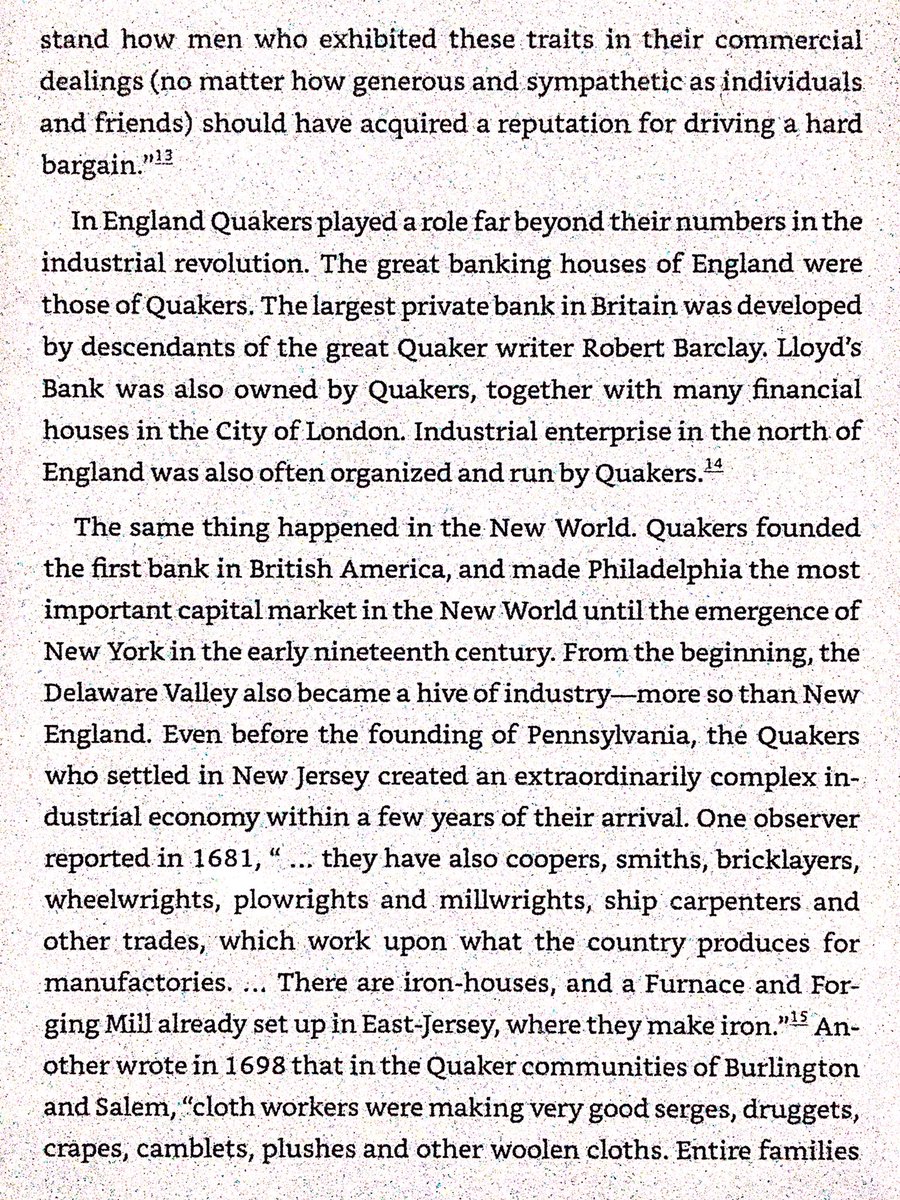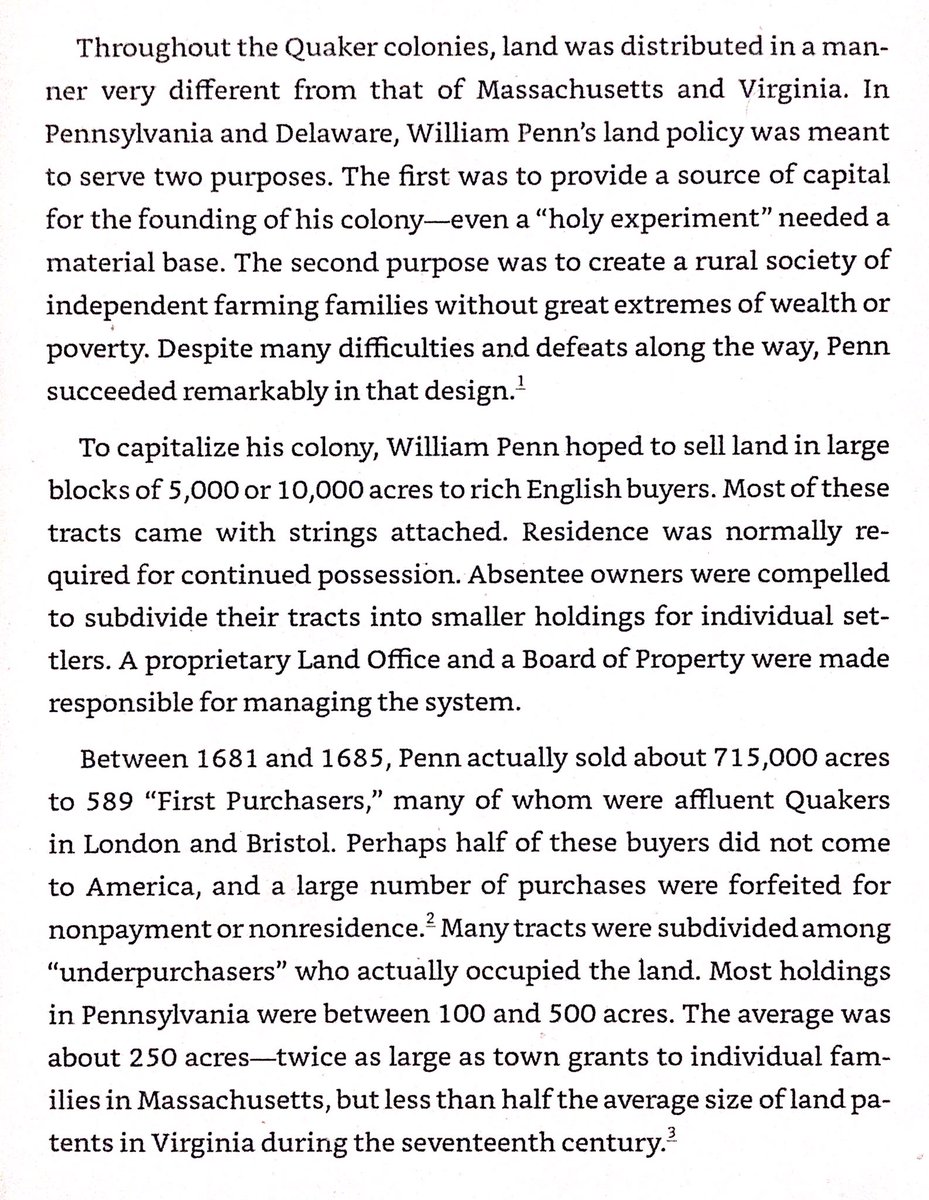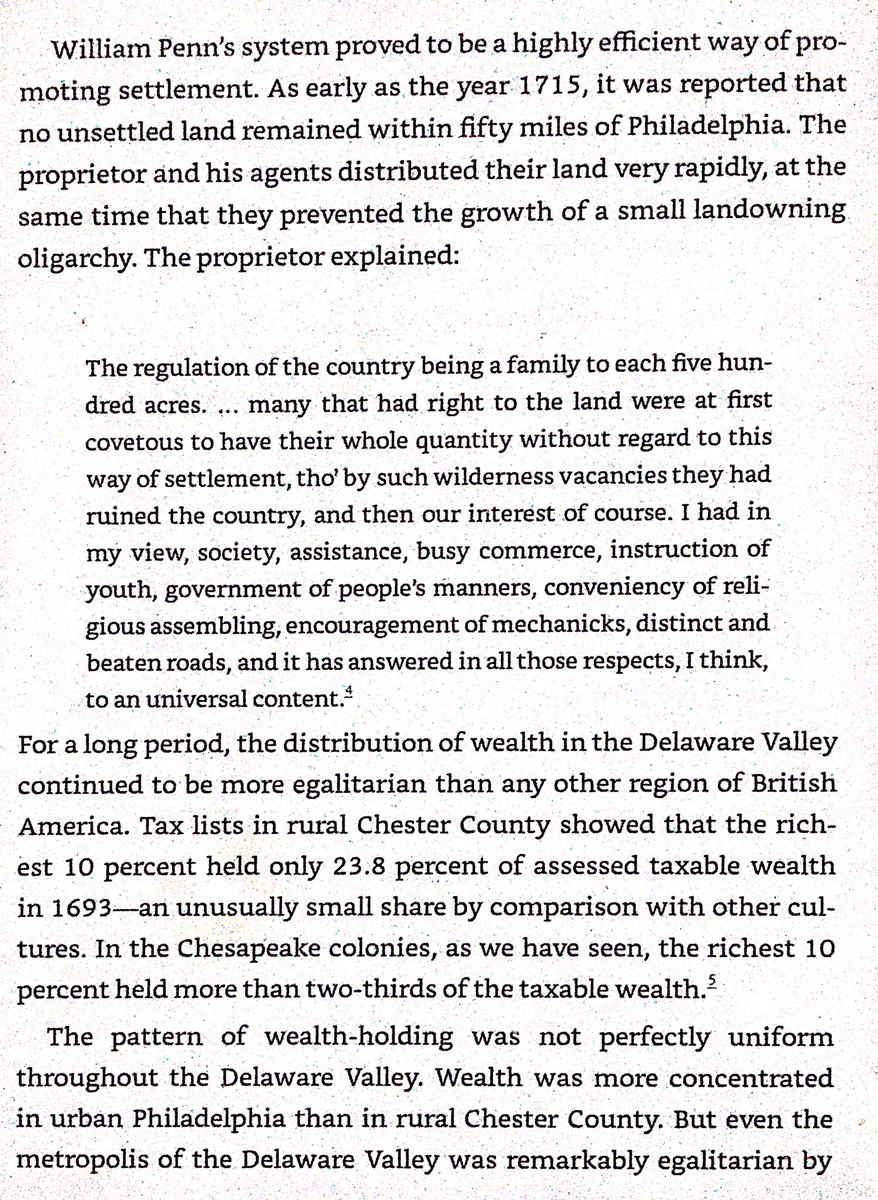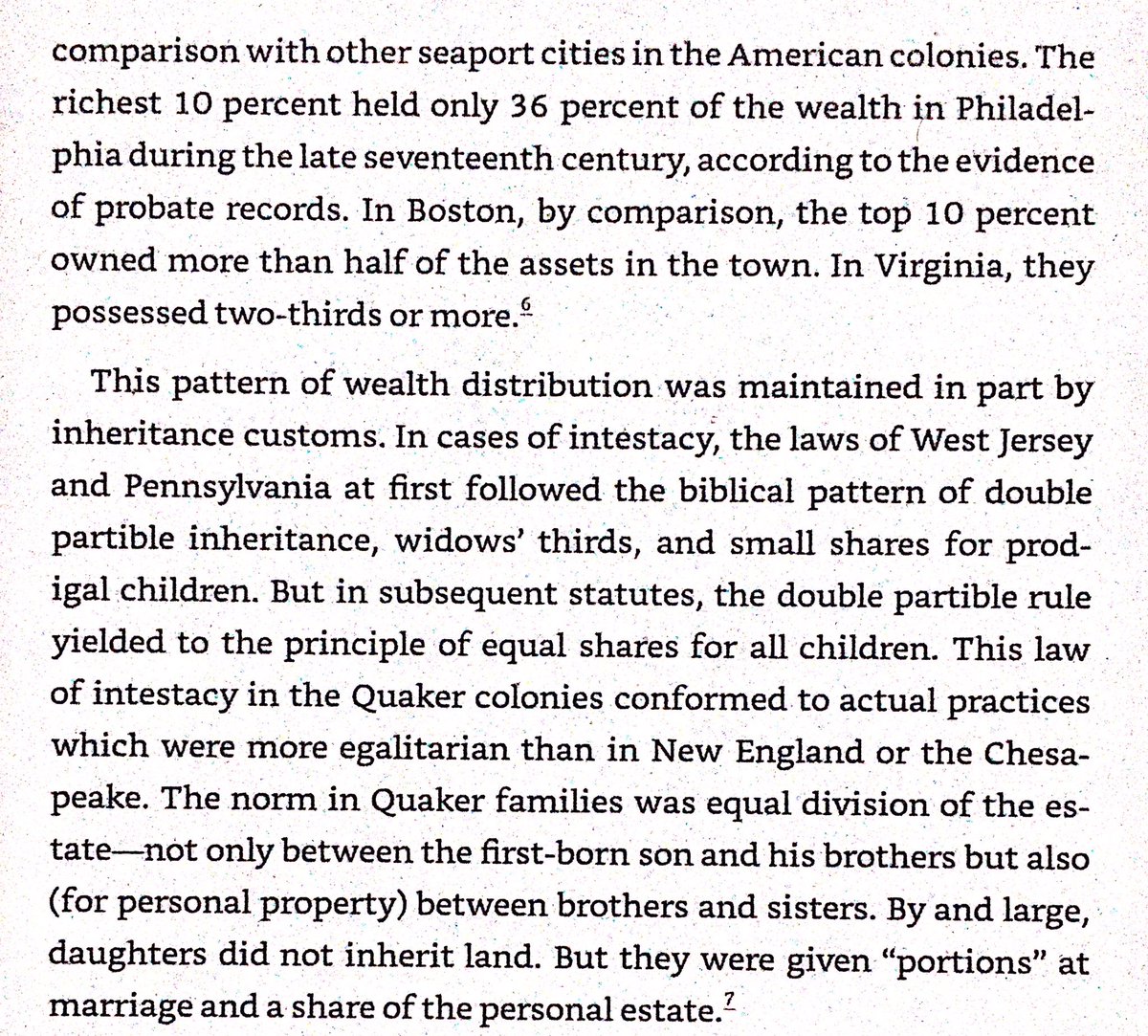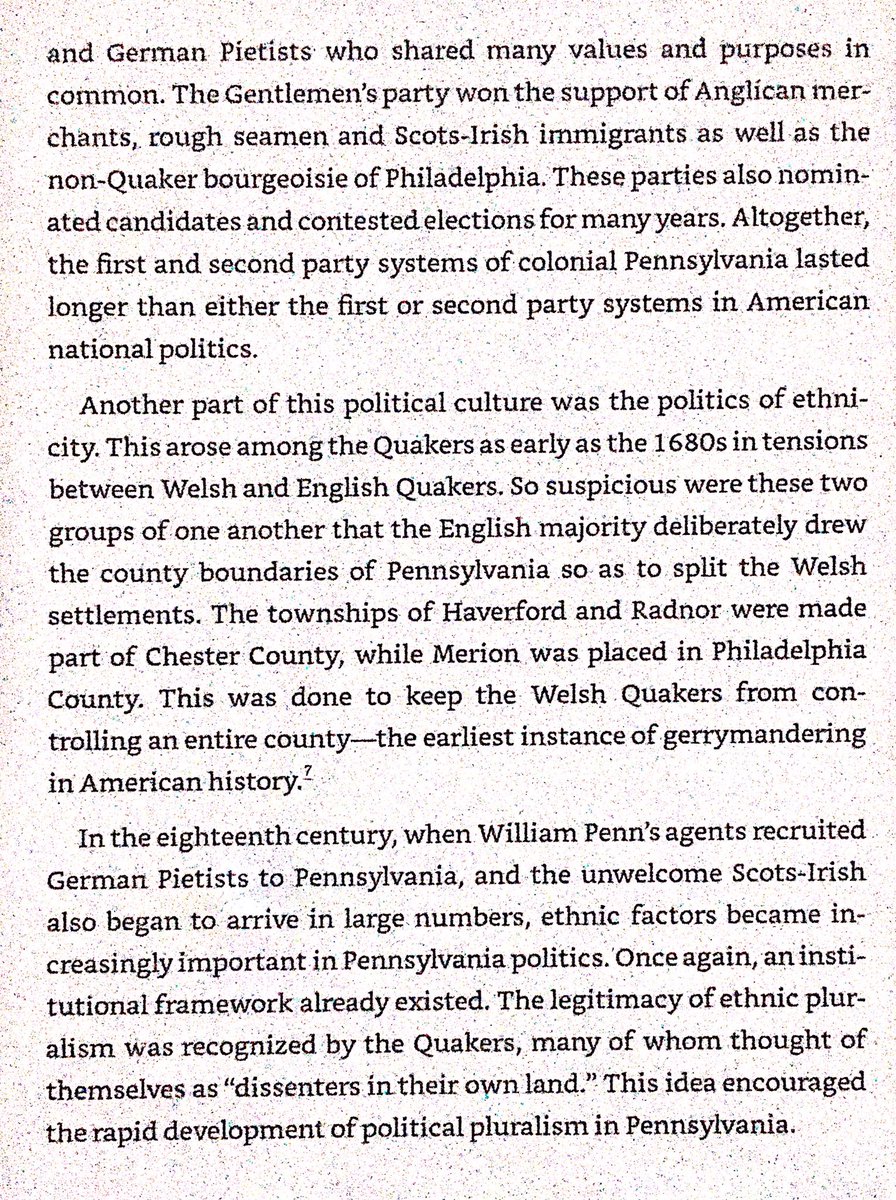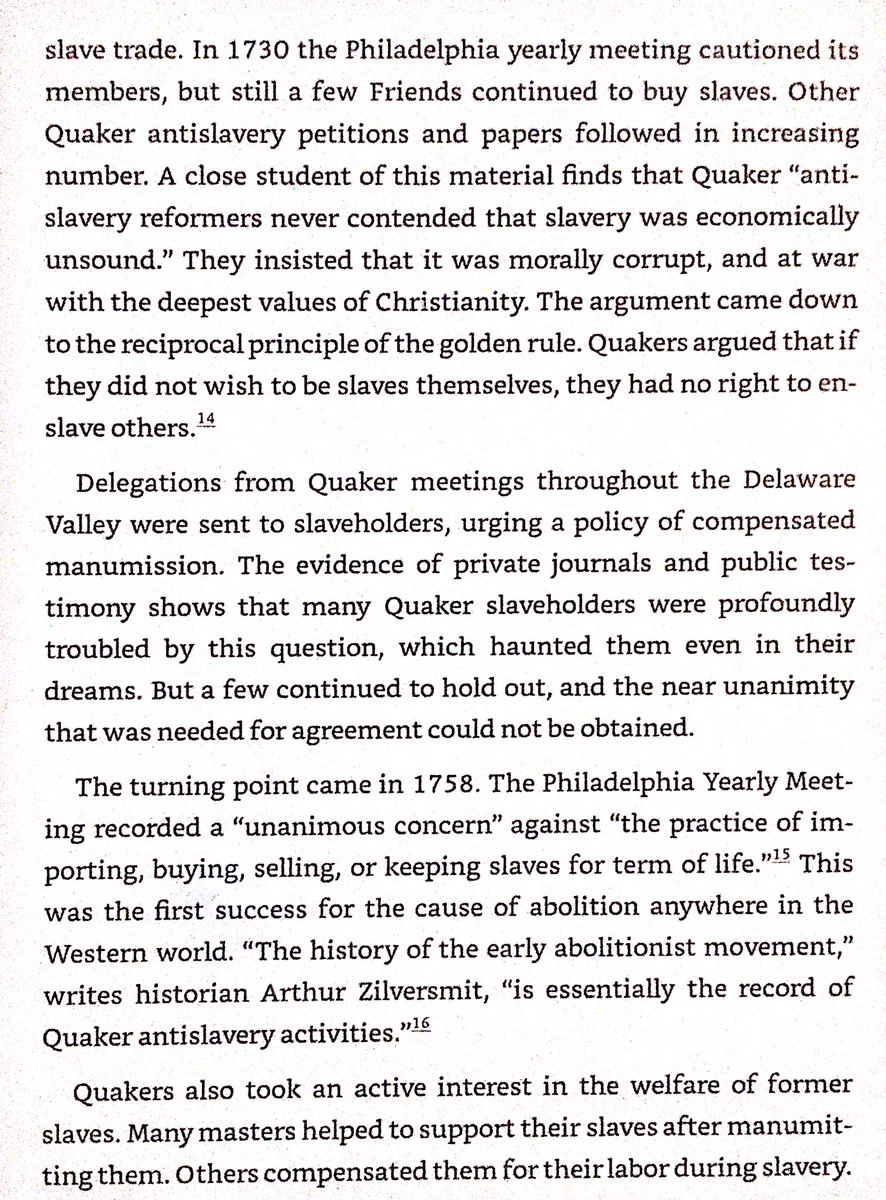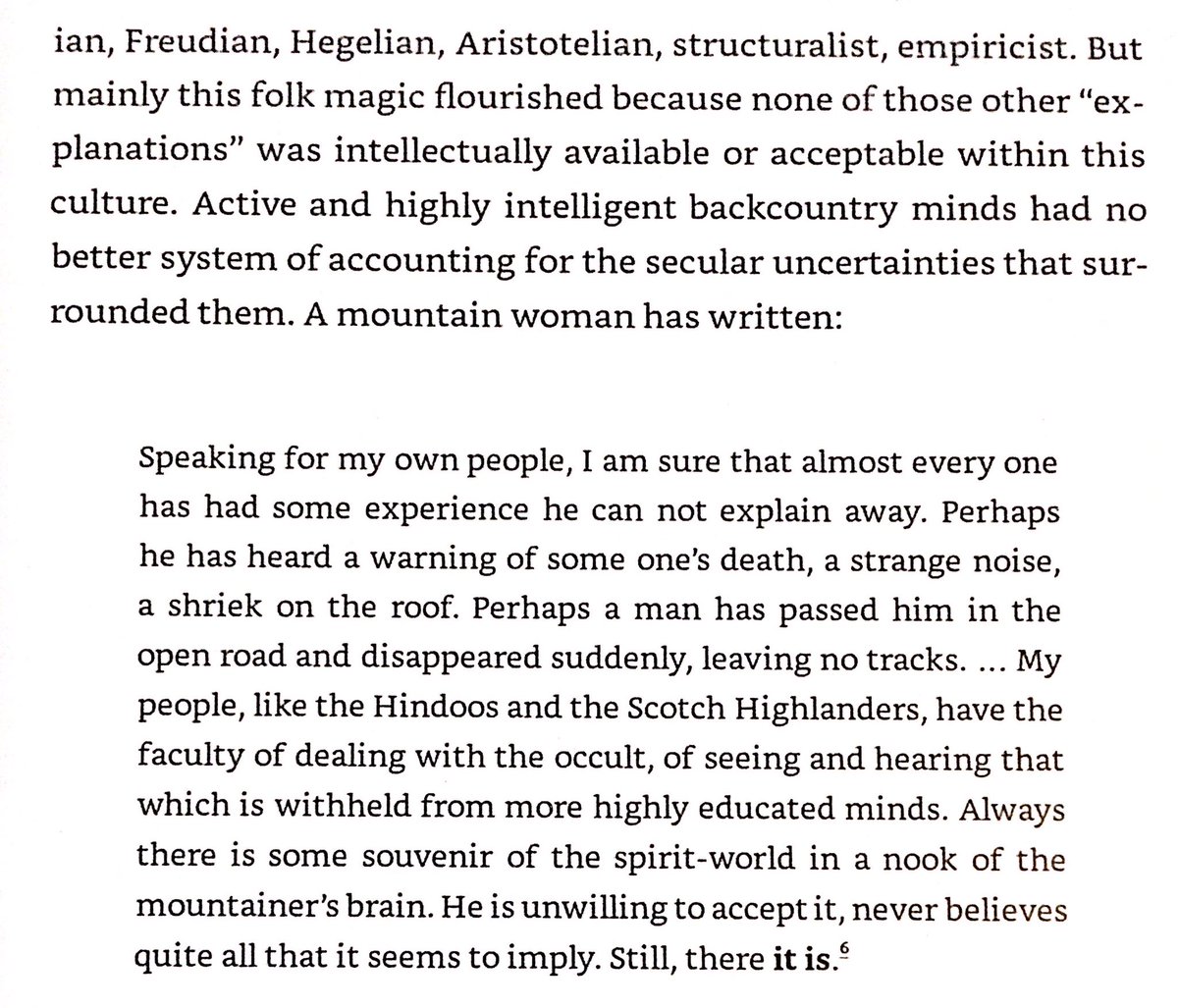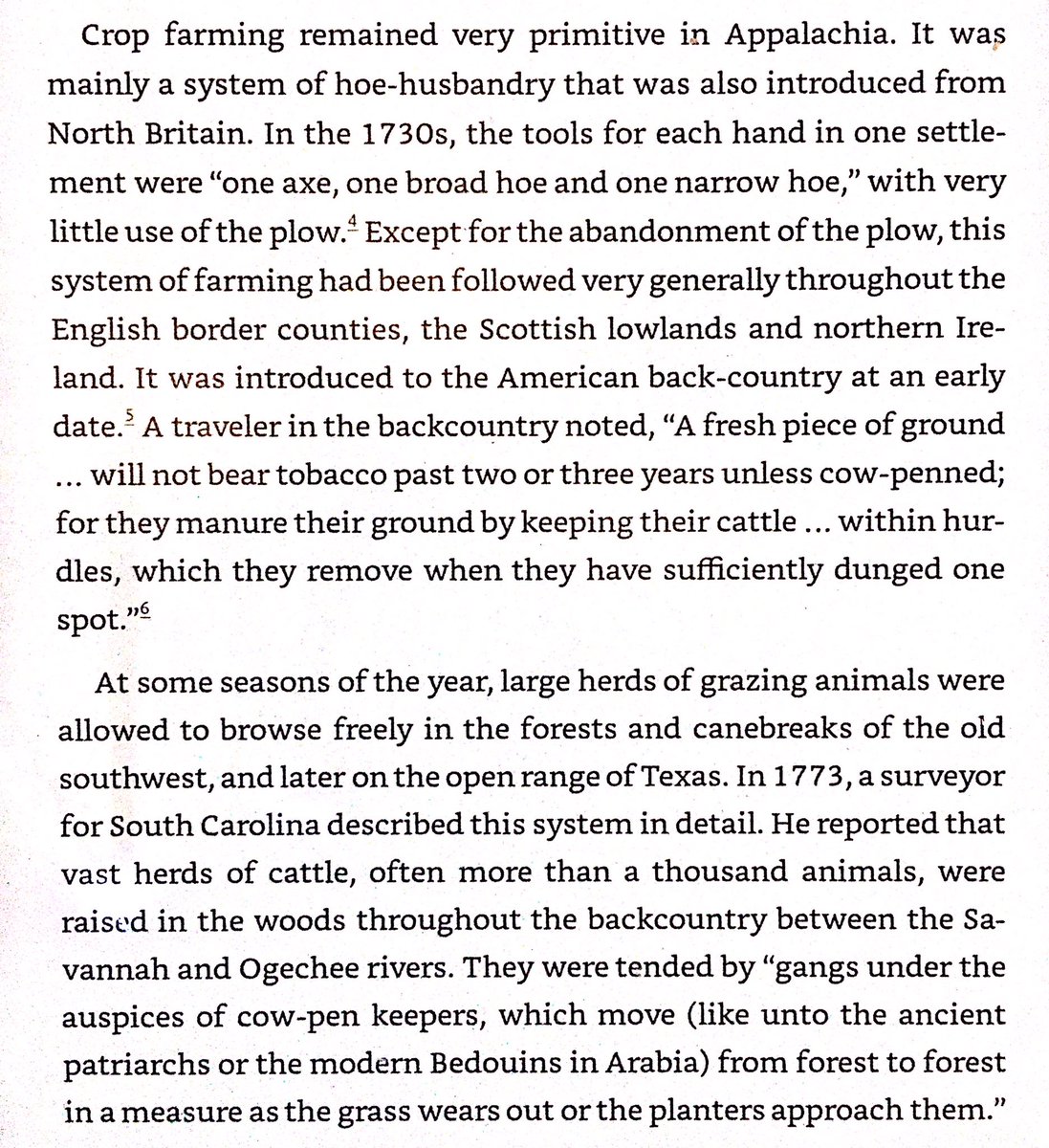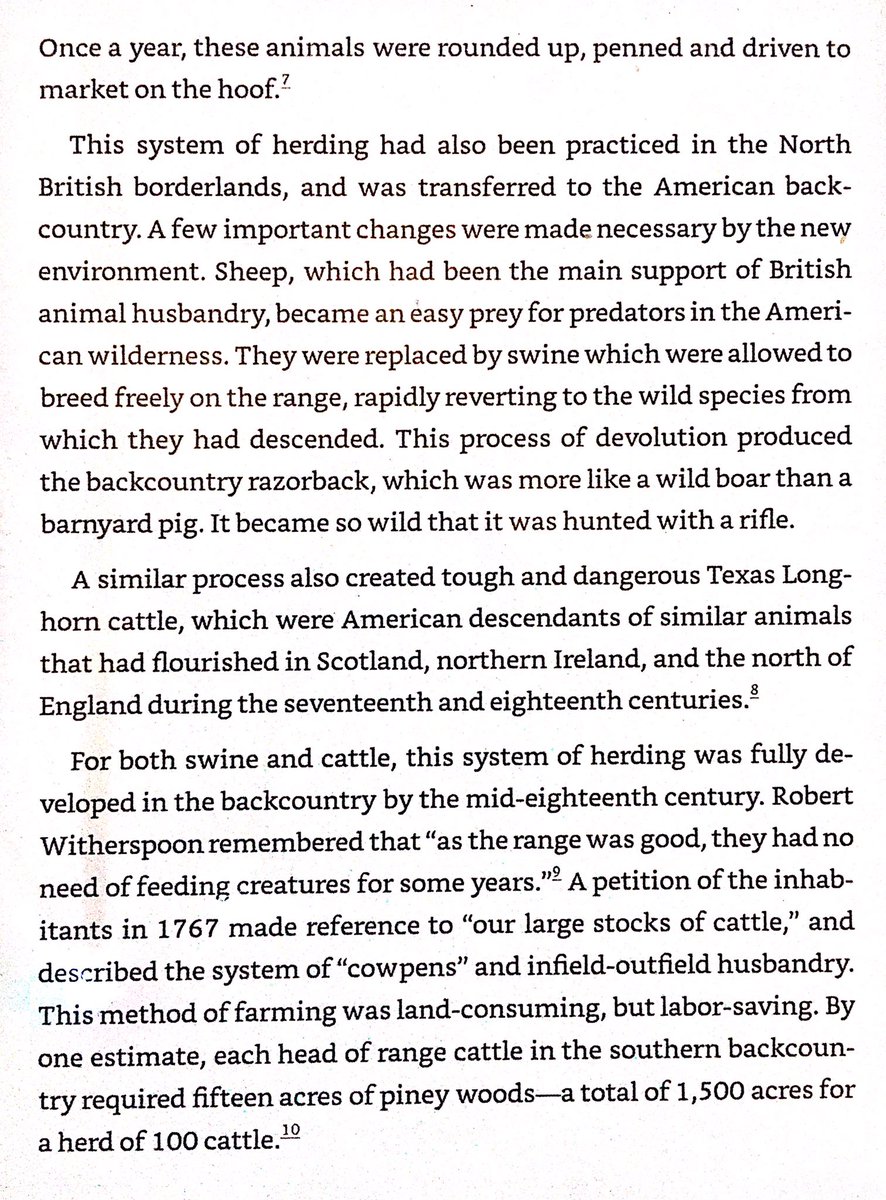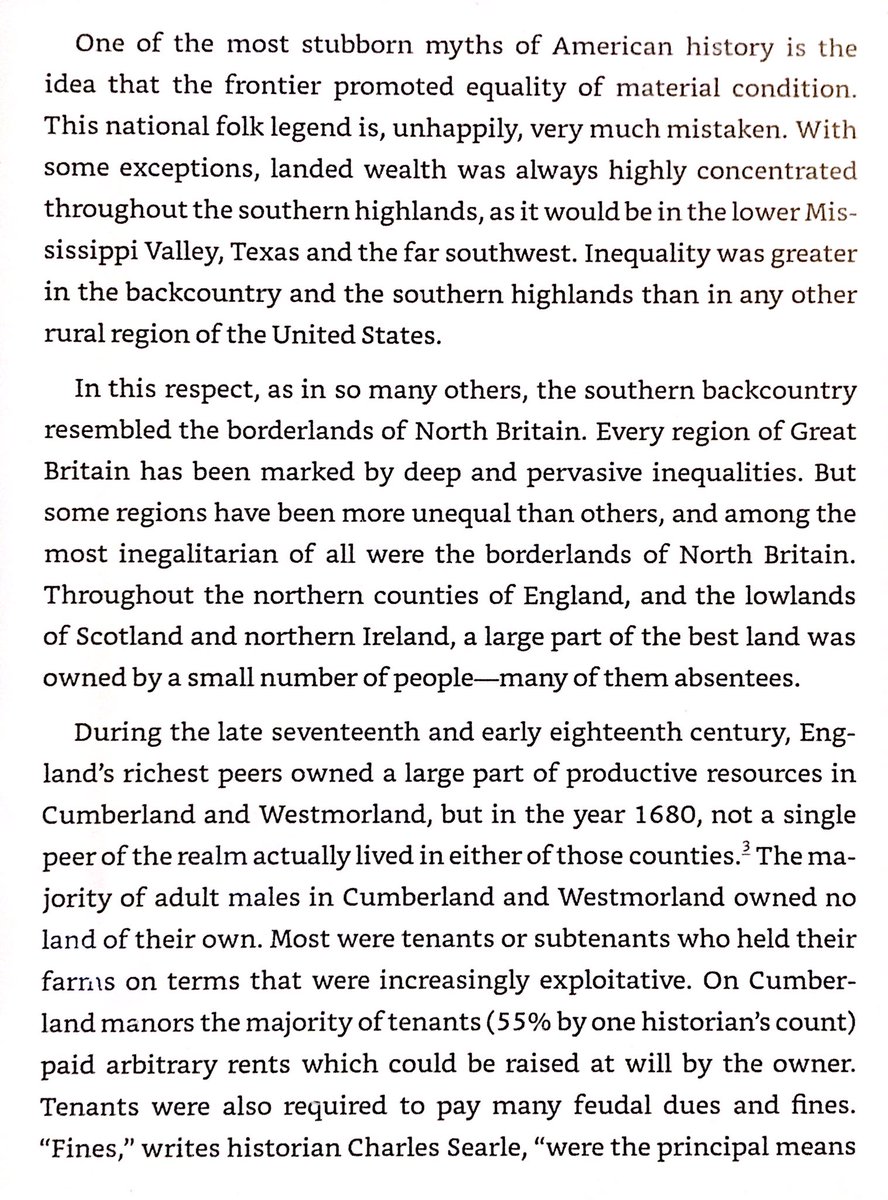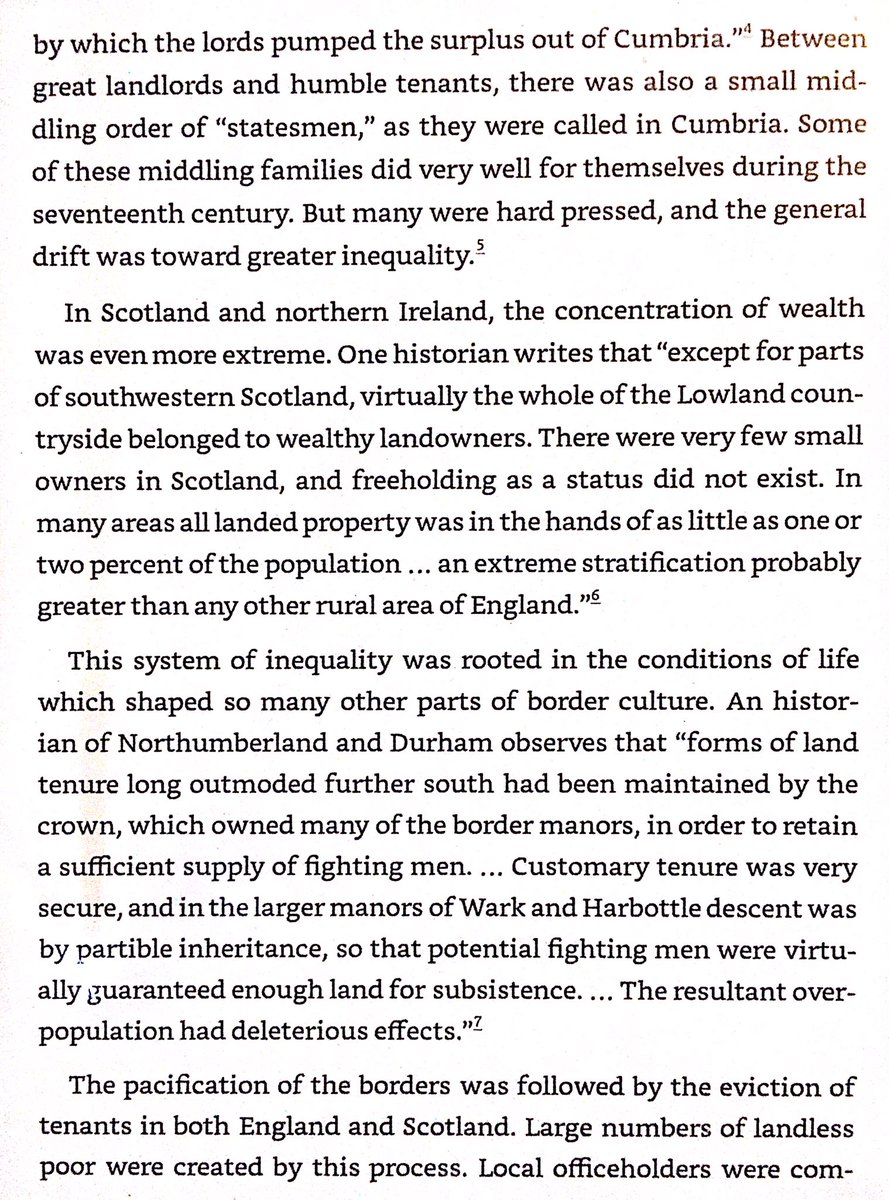Thread with excerpts from “Albion’s Seed: Four British Folkways in America” by David Hackett Fischer
The four major waves of settlers before War of Independence: Puritans from E England to MA, Royalist noblemen with indentured servants to VA, Midlanders & Welshmen to Delaware River Valley, & the Ulstermen & Northern English who went to Appalachia.
Puritans were mostly from middle class backgrounds - yeoman, artisans & merchants. They were selected, & applicants of poor quality were rejected for admission to the colony. Literacy of colonial Puritans was twice that of general English population.
Cold climate of MA reduced disease burden for early White settlers - mortality rates were considerably under those of Europe. Africans fared poorly in the climate - dying at twice the rate of Whites, mostly due to pulmonary diseases.
Puritans not only encouraged physical exercise - they required it for both individual health & military preparation. Sports that involved gambling & drinking were discouraged.
Puritans deliberately excluded both upper and lower classes from settling in Massachusetts. They were an unusually middle class society of artisans, merchants & yeomen.
Violent crime was uncommon in MA, but most people were prosecuted at least once for moral crimes - lying, fornicating, drunkenness, laziness, etc.
William Berkeley ruled Virginia 1642-1677. Population grew 8k -> 40k. He created a ruling class of exiled Anglican Royalist noblemen from the English Civil War, also bolstering their ranks with younger sons of noblemen.
Coastal Virginia bred amoebic dysentery, typhoid fever, & malaria. These killed many people every summer, & left the lowland Virginians sickly & unhealthy.
Virginia’s upper classes were very well educated, but the other classes weren’t. The Cavaliers felt that mass literacy generated heresy & idleness, & partially blamed it for the English Civil War.
Author argues that introduction of slavery to Virginia was result of her leaders wanting to emulate their rich cousins in rural England with their masses of low class workers. As early as 1736 they realized this made their society worse.
The county oligarchies which were organized into the House of Burgesses & dominated Virginia politics were voted in by landholders. House’s status was disputed - some said it was only answerable to the king, others that it was just a municipal council equivalent under Parliament.
Virginia law enforcement was run by county sheriffs - positions either held by landholders in rotation or selected by landholders for appointment. Contrasted with the locally & popularly elected Massachusetts constables.
Virginia’s ideal of hegemonic liberty & its evolution. 1st Cavaliers & strong Royalist support, 2nd Whigs & Jeffersonian democracy, & 3rd modern libertarians.
23k Quakers & their associates settled Delaware River Valley 1675-1715. They were 1/3 of colonial population by 1750 - mostly living in PA, NJ, northern MD & northern DE. While Quakers dominated the Delaware, Philadelphia was inhabited by others at odds with Quakers.
Quakers were cosmopolitan, & brought Irish, Germans, & Dutch to settle the Delaware Valley. Some non-Quaker groups like Pietists were fond of Quakers, so Quaker minority status in 1760 didn’t diminish their political influence - it enhanced it.
Quaker restrictions on marrying non-Quakers & complex marriage requirements led to higher age of marriage & lower marriage rates than their Anglican & Puritan neighbors. Main reason for their decline in population share - fewer kids.
Some Quakers believed in reincarnation - with human spirits reborn in animals & animal spirits reborn in humans.
Quakers in both Europe & America were very active in finance & banking. They played a major role in developing insurance industry, disparaged debtors, & encouraged honest business practices. These beliefs & institutions stimulated industrial development.
William Penn created a relatively more equal society of independent farmers by requiring residence for land ownership & dividing up large properties in West Jersey & Pennsylvania . Quaker inheritance customs helped - land was divided between all children equally.
Pennsylvania’s 18th century politics - first two similar parties representing the rural & urban populations respectively. After Penn’s death the Quakers & German Pietists organized Quaker Party against the Gentlemen’s Party (Scots-Irish, seamen, Anglicans, & other non-Quakers).
Quakers were successful in gradually reducing & abolishing slavery in Pennsylvania over course of 18th century.
Scots-Irish woman in Appalachia describes her people’s interest in superstition. Reminds me of one of Pechorin’s thoughts in “Hero of Our Time” - Lermontov must have remembered part of his Scottish heritage.
Scots-Irish would graze their pigs & cattle in the forests. The cattle & pigs were vulnerable to natural predators, & quickly evolved into vicious longhorns & razorbacks respectively.

 Read on Twitter
Read on Twitter